Fulfilling the Vision Fulfilling the Vision



Your success is a testament of your astute acumen. You envisage growth by capitalizing on your legacy and seek a bank that understands you.
An extensive global network and the experts you seek to build your world are right here.

Welcome to the September 2023 edition of MEA Finance magazine. Parts of the Middle East are determinedly, and inevitably on the road to becoming global banking and financial centres; it may be argued that some already are. While there is no welcome ceremony to determine crossing into global financial hub status, there are clear indicators of having moved into its radius. The signs are many, from across the entirety of the sector and the wider economy, and in reading this issue, you will sense the growth and read about the market maturity taking place in our region that will see it take its place in the global financial premier
Our cover feature in this issue is an interview with Jamal Saleh, Director General of the UAE Banks Federation. While addressing the role and vision of the UAE BF, he conveys the ascendency of the local banking sector since the founding of the representative body, the challenges they have confronted and how it is “only a matter of time” before local banks are global known names. Themes of growing stature and emergence into rightful prominence will be gleaned from our look at Islamic Finance in this issue, starting at page 22. We hear from two CEO’s from important Islamic Financial Institutions, Dr. Adnan Chilwan and Hisham Hammoud, about how Islamic Finance is on the verge of becoming mainstream in the global markets.
The growing financial well-being of the people of the UAE is addressed by Mohammed Qaasim Al Ali, Group CEO at National Bonds, who tell us, “Since the inception of National Bonds in 2006, the landscape of savings and investments has undergone a significant evolution”, meeting the needs and financial aspirations of the peoplepage 36.
Growing financial well-being, addressed from another direction, is tackled in our look into the development of Robo-advisory, from page 14. In this focus we weigh both the challenges and the opportunities this technology led evolution is bringing both the investment sector and their clients across the region. Faisal Hassan, CIO at Al Mal Capital and Mark Chahwan, CEO at Sarwa are your guides through this feature.
That sustainable finance is a growing sector, and concern, no longer a surprises, but from page 48, George Hojeige, Group CEO for Virtugroup, offers insights into its growth from his vantage point atop one of the UAE’s most forward-thinking business set-up companies, “With the government leading the move towards sustainability and encouraging green finance projects, UAE-based companies and financial institutions have followed suit”.
The maturing Neobanking market and its growth are looked into from page 44, where we see how they are evolving the regional banking landscape. And the theme continues in our regular look into Banking Technology where Volante Technologies’ Ahmed Marouf talks about how the advent of ISO 20022 will drive growth for banks – page 38.
With the UAE keen to the grow the Fintech sector, Fintech Surge and MEA Finance partnered in a roundtable discussion hosted by ADGM and supported by Geidea. Read the coverage of this debate from page 40, where key matters relating to scale and regulation were tackled.
Finally, the market focus this month is on Egypt where their management of the challenges faced by the economy is looked at, as well as the busy M&A activity in the local banking sector. Read about this from page10.
Again, a busy a varied read for you. I hope you feel the same sense of achievement, even some accomplishment pride for what the region’s banking and financial sector has, and is set to achieve, as we did when putting this issue together for you.

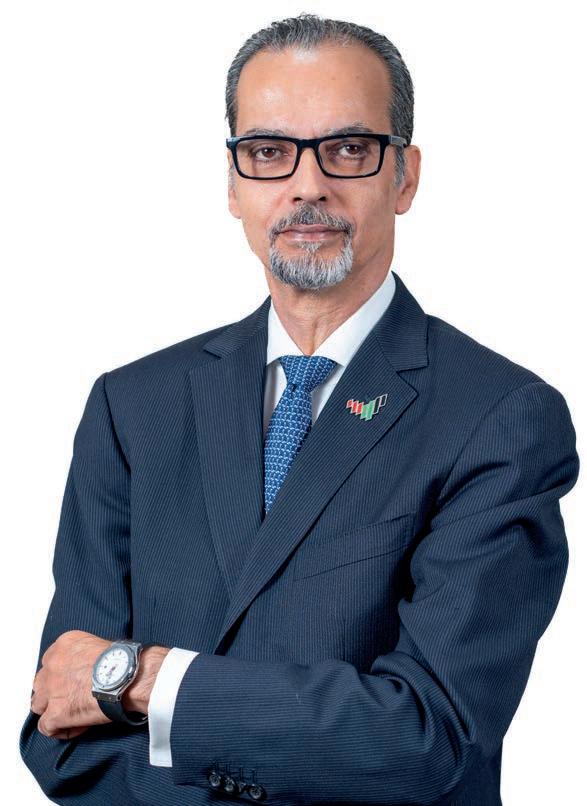
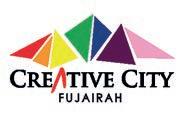

EVENTS AND MARKETING MANAGER Cris Balatbat crissyb@mea-finance.com
Tel: +971 58 594 4818
EVENT AND CONTENT DIRECTOR Natasha Cristi natasha@mea-finance.com
Tel: +971 50 303 4235
SENIOR DESIGNER Florante Magsakay Tel: +971 52 570 1811 design@mea-finance.com
ADMIN AND FINANCE MANAGER Marilyn Nainque marilyn@mea-finance.com Tel: +971 58 5025836
WEB ASSISTANT Marie Orayan web@mea-finance.com
FEATURE CONTRIBUTORS: Mushtak Parker, Walter Sebele editorial@mea-finance.com
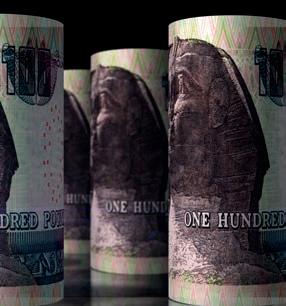




Dubai office: #404, Building B, Al Saaha Offices, Old Town Island Burj Khalifa District PO Box 487177, Dubai, UAE Email: info@mea-finance.com


The signing of this partnership comes as Mastercard unveiled its latest global Centre for Advanced AI and Cyber Technology in Dubai. In addition to developing AI-powered solutions to fight financial crime, the Centre will focus on securing the digital ecosystem and driving inclusive growth. It will also serve as a hub to nurture and hire local AI talent, including data engineers and data scientists, with a remit to accelerate AI innovation globally and service customers all around the world from the UAE.
The UAE’s Artificial intelligence, Digital Economy and Remote Work Applications Office and Mastercard signed a Memorandum of Understanding to increase Artificial Intelligence (AI) capabilities and readiness in the region. An initial focus of the effort will be dedicated to battling financial crime, securing the digital ecosystem and driving inclusive growth in the UAE and beyond.
H.E. Omar Sultan Al Olama, Minister of State for Artificial Intelligence, Digital Economy, and Remote Work Applications emphasised the UAE government’s dedicated efforts towards strategic collaborations with the private sector and leading international companies. These
collaborations have been recognised as pivotal catalysts for expediting the adoption of Artificial Intelligence, a crucial component of the nation’s journey towards digital advancement and prosperity.
His Excellency pointed out the significance of bilateral cooperation. He emphasised the importance of realising the aspirations outlined in the UAE Strategy for Artificial Intelligence 2031 which aims to consolidate the UAE’s position as a leading hub for Artificial Intelligence. Furthermore, His Excellency praised Mastercard’s efforts in adopting AI, as well as their inauguration of a global centre dedicated to Artificial Intelligence and advanced technology within the UAE.
“AI plays a critical role in our operations, powering our products and fuelling our network intelligence to improve digital experiences, while reducing financial fraud and risk,” said Ajay Bhalla, president, Cyber & Intelligence at Mastercard. “The combination of this latest Advanced AI Centre and our partnership with the Government of the UAE will deliver greater value for our customers and ultimately reinforce trust in the digital ecosystem.”
Mastercard’s new centre will support a new Innovation Hub in the Emirate of Dubai. Under this program, governments and businesses from across the region will collaborate on new efforts to support the continued digital transformation.
This Centre in Dubai is the latest in a series of investments Mastercard has made in Advanced AI, with existing centres in the US, Canada and India. To date, Mastercard has made use of AI most significantly and successfully in its efforts to enhance cybersecurity and user experiences. By applying a sophisticated AI engine, Mastercard protects more than 125 billion transactions from fraud every year.
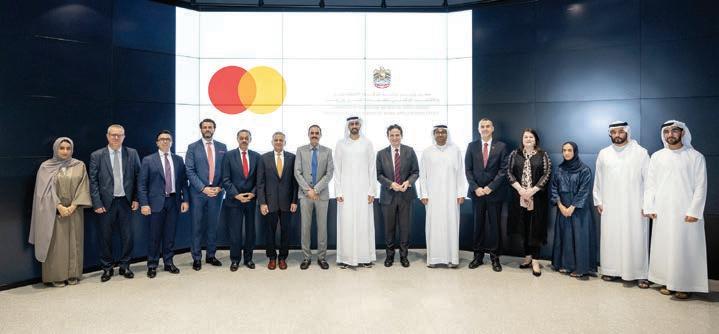



According to the EY MENA IPO Eye Q2 2023 report, IPO activity in the MENA region continued to gather momentum with a total of US$1.8b in proceeds from 13 IPOs – a 44% increase in the number of listings but an 80% drop in proceeds when compared to Q2 2022
UAE and Saudi Arabia continue to be the most active markets in the MENA region in terms of both the number and size of IPOs. As just one example, ADNOC’s second portfolio company listing in 2023 outpaced the global markets in terms of demand. The MENA region continues to have strong economies and low debt; coupled with the reform and deregulation in the region, it continues to be an attractive environment for new listings.”
Overall, in H1 202 3 the MENA IPO market registered a total of 23 IPOs (4% year-on-year decrease), all of which were in the GCC with total proceeds of US$5.2b. While the general EMEIA region continues to see a significant contraction in IPO values, the MENA region has a promising pipeline for the rest of the year, particularly from KSA. So far, 23 S audi companies have announced their listing plans on the Tadawul for H2 2023. Further afield, two companies in Egypt intend to list, indicating a strong pipeline of IPOs to come in the remainder of the year.
The growth in Q2 2023 was driven predominately by the Kingdom of Saudi Arabia (KSA) and the United Arab Emirates (UAE). KSA dominated the region’s IPO activity in terms of the number of listings in Q2 2023, with four listings on the Tadawul main market raising US$0.8b and seven IPOs on the Tadawul (Nomu) parallel market with proceeds of US$0.1b. Jamjoom Pharmaceuticals Factory Company raised US$336m, the highest raise on the Tadawul for the quarter, followed by First Milling Company SJSC which raised US$266.4m. Both offered a free float of 30% of the company’s share capital and were oversubscribed.
In the UAE, the Abu Dhabi Securities Exchange (ADX) completed their largest IPO of the quarter with ADNOC L&S raising US$769.5m. The IPO saw the largest demand globally for a transaction so far in 2023, with an oversubscription level of 163x in aggregate – the highest oversubscription for a UAE book-build IPO.
On the Dubai Financial Market (DFM), Al Ansari Financial Services PJSC was the UAE’s first family-owned company to be listed, raising US$210.4m in proceeds.
Brad Watson, EY MENA Strategy and Transactions Leader , said: “The second quarter of 2023 confirmed that MENA IPOs are not experiencing the downward trend witnessed globally. The

Gregory Hughes, EY MENA IPO and Transaction Diligence Leader, said: “The MENA IPO pipeline for H2 2023 and 2024 remains very healthy with several IPOs already announced in KSA and multiple processes ongoing across the broader region, with further transactions planned in the UAE, Oman, Qatar and Kuwait. We see planned IPO activity across different sectors and from a combination of family business, state-backed enterprise and private equity stakeholders. MENA has been a bright spot in the much more subdued global IPO market, and we expect this to continue in the future, especially with international businesses also exploring listings in this region.

Your next investment decision is just three simple steps away: our th

•
•


Egypt has ramped up efforts to fight inflation including devaluing the pound amid investment inflows from the country’s GCC allies, and with efforts to tempt back investors plus busy M&A activity in the banking sector, the country is working at managing its challenges.

Egypt is among emerging economies that remain exposed to the war in Ukraine as higher energy and commodity prices have pushed up inflation and slowed economic growth. The International Monetary Fund (IMF) said that the war in Ukraine has crystallised pre-existing vulnerabilities, triggering capital outflows and reducing the central bank’s foreign reserves.
The soaring inflation and elevated volatility in global financial markets are contributing to the country’s worst foreign exchange crunch since a dollar shortage five years ago. Egypt’s year-onyear headline inflation accelerated to a record 35.7% in June from 32.7% in May.
Despite the impact of the RussoUkrainian war and prolonged economic strains, the IMF said the government in Cairo is implementing structural reforms to preserve macroeconomic stability, restore buffers and pave the way for sustainable long-term growth.
However, the fund urged the government to take further steps to foster private-sector development, improve governance and reduce the role of the state as part of a 46-month $3 billion financial support package for Egypt that is aimed at bolstering an economy battered by fallout from the war in Ukraine.
“Decisive progress on deeper fiscal and structural reforms is needed to boost the economy’s competitiveness, improve
governance and strengthen its resilience against shocks,” the IMF executive board said in July.
Egypt’s fiscal reforms have been critical in stabilising the economy and the value of the pound since 2016, until the central bank allowed the currency to weaken as much as 36% against the dollar in 2022. However, the devaluation of the pound is not expected to significantly weaken banks’ capital ratios and Fitch Ratings sees Egypt’s current account deficit declining to 3.5% of GDP in the fiscal year 2022/23 from 4.6% in fiscal 2021/22.

Authorities have ramped up efforts to fight inflation, including devaluing the pound amid investment inflows from the country’s GCC allies as part of Egypt’s broader strategies to hedge the economy against the worst of the problems. Egypt unveiled plans to divest government stakes in 32 companies including Telecom Egypt, United Bank, Banque du Caire and Arab African International Bank earlier in February
Egypt, one of the world’s largest wheat importers, has raced to secure financial support from its international and regional partners to prop up an economy struggling with higher food and fuel import bills.
The IMF approved a $3 billion loan for Egypt last December that will offer some relief to the economy for almost four years, with the agreement expected to draw in an additional $14 billion.
The deal, known as an extended fund facility arrangement, gave the government immediate access to about $347 million, which the Washington-based fund said will help the Arab world’s most populous nation bolster its balance of payments and budget.
A study by Deutsche Bank revealed that Egypt requires $28 billion through to the end of 2023 to refinance its maturing debt, pay interest and fund its currentaccount deficit with an additional $20 billion required the following year – which
will likely see the government tap debt markets for support.
According to the IMF, “The rapidly changing global environment and spillovers related to the war in Ukraine are posing significant challenges for countries around the world, including Egypt.”
The IMF loan, together with billions of dollars in cash inflows and investments from Egypt’s Gulf allies, are band-aids designed to keep the country afloat. The World Bank also cautioned that the North African state’s overall macroeconomic environment during FY2022/23 will be undermined by the negative spillovers from global economic conditions before it starts improving over the medium term.
The bank approved a new $7 billion partnership agreement with Egypt for FY2023/27 in March to support inclusive and sustainable growth.
Earlier in November 2022, Qatar’s wealth fund, Qatar Investment Authority, deposited $1 billion in the central bank joining the UAE and Saudi Arabia—who too have pledged over $20 billion to bolster Egypt’s economy.
Saudi Arabia’s sovereign wealth fund, the Public Investment Fund (PIF), launched a company in August to invest in promising sectors throughout Egypt. The wealth fund said the Saudi Egyptian Investment Company (SEIC) will invest in the country’s “promising sectors” from infrastructure and real estate to pharmaceuticals. The kingdom also deposited $5 billion in the Central Bank of Egypt (CBE) in the first quarter of this year.
Abu Dhabi’s wealth fund ADQ acquired stakes in several publicly listed companies in Egypt last August, building on its long-term commitment to invest in the country’s economic growth through its $20 billion joint strategic investment platform. ADQ acquired stakes in five publicly traded companies including Commercial International Bank, Fawry and Misr Fertilisers Production Company.
Egypt’s wealth fund, which was founded in 2018, is part of the country’s broader structural reforms that are aimed at bolstering private investment. The fund
The World
is modelled after those in the GCC and is aimed at generating additional wealth from under-utilised state assets.
PwC said the fund is aimed at helping Egypt better utilise its assets and attract foreign investments that have, so far, been overshadowed by an infusion of overseas cash into the local debt market. With around $12 billion in assets under management, The Sovereign Fund of Egypt ‘is partnering with the private sector to attract domestic and foreign investments as well as build on economic reforms that began in 2016 with the flotation of the currency. It was appointed by the country’s Ministry of Defence to sell part of a portfolio of companies in
what would be the country’s first spin-off of companies owned by the military.
Earlier in February, Egypt unveiled plans to sell stakes in as many as 32 companies including Banque du Caire, United Bank of Egypt and Arab African International Bank by the end of March 2024 as the government seeks to raise as much as $6 billion by selling stakes in state-owned businesses.
The support package from the IMF will introduce wide-sweeping economic reforms, including a “durable shift to a flexible exchange rate regime” and a “monetary policy aimed at gradually reducing inflation. ″ It also envisages structural changes to the Egyptian economy to rebalance “the playing field” between the state and private sector.
Under the leadership of President Abdel Fattah Al-Sisi, Egypt is accelerating infrastructure development that includes a rapid development of the road network and an expansion of the Suez Canal. The Egyptian government moved to the New Administrative Capital, a new city that is being built 45 km east of Cairo, in January.
The new city, which has been six years in the making at an estimated cost of $59 billion, is the grandest in a slew of megaprojects being built to reshape Egypt and will eventually house 6.5 million people to ease overcrowding in central Cairo.
– The International Monetary Fund
Egyptian lawmakers approved the North African country’s $97.41 billion (EGP 3 trillion) for the 2023/24 fiscal year earlier in June. The government allotted EGP 127.7 billion towards the food subsidy
ENVIRONMENT
UNDERMINED
THE NEGATIVE SPILLOVERS FROM GLOBAL ECONOMIC CONDITIONS BEFORE IT STARTS IMPROVING OVER THE MEDIUM TERM
–
Bank DECISIVE PROGRESS ON DEEPER FISCAL AND STRUCTURAL REFORMS IS NEEDED TO BOOST THE ECONOMY’S COMPETITIVENESS, IMPROVE GOVERNANCE AND STRENGTHEN ITS RESILIENCE AGAINST SHOCKS”
programme for the fiscal year that began on July 1, up from EGP 90 billion a year prior.
The finance ministry is forecasting a budget deficit of EGP 824.4 billion, up from an estimated EGP 723 billion in 2022/23 and EGP 486.5 billion in 2021/22.
Finance Minister Mohamed Maait, in an address to an economic forum last October, said that Egypt aims to cut the public budget deficit to only 4%; a figure that has not been achieved for 42 years.
Fitch Ratings slashed Egypt’s debt rating in May 2023 to ‘B’ from ‘B+’, the first downgrade in a decade after a series of currency devaluations and lack of significant reforms sent the North African nation’s economy reeling.
“The revision of the outlook to negative reflects the deterioration in Egypt’s external liquidity position and reduced prospects for bond market access, leaving the country vulnerable to adverse global conditions at a time of high current account deficits and external debt maturities,” said Fitch Ratings.
Data from the central bank showed that Egypt’s net foreign reserves rose for the tenth straight month to $34.8 billion in June.
Egypt, which left its interest rates unchanged in May, unveiled plans to move to a more flexible currency regime as part of reforms that helped the government clinch the IMF deal. The central bank has devalued the pound three times since early 2022, saying the flexible exchangerate policy leaves the forces of supply and demand to determine the value of the currency against other currencies.
Though a series of economic measures that were unveiled by the central bank last year are expected to result in some short-term economic pain, they will go a long way to restoring the country’s macroeconomic stability.
Egypt, a major food importer, has struggled to deal with record grain prices fuelled by the conflict in Europe. The government secured $2 billion in funding from the United Nations’ International Fund for Agricultural Development
and partner organisations to boost food security in the country and drive investment in food, water and energy.
The support package from the IMF includes a comprehensive policy package to preserve macroeconomic stability, restore buffers and seeks to enhance inclusive and private sector growth.
Egypt’s domestic banking sector remains very liquid, with high deposit growth off a low base of financial inclusion. However, Fitch Ratings projected pressures on banks’ core capital ratios last November mainly arising from the depreciation of the pound and fair value losses on government securities as yields are rising.
The rating agency downgraded the National Bank of Egypt, Banque Misr, Banque du Caire and Commercial International Bank to negative from stable citing a deterioration in the country’s external liquidity position and reduced prospects for bond market access.
There has been a wave of dealmaking in Egypt’s banking sector and the operating environment is expected to become highly competitive after investors pulled billions of dollars out of the country’s treasury markets, forcing the central bank to devalue the currency.
FABMISR, First Abu Dhabi Bank’s (FAB) Egyptian unit, completed integrating its banking services with Bank Audi Egypt in November.
This follows FAB’s acquisition of 100% of the share capital of the Egyptian subsidiary of Lebanon’s Bank Audi in 2021.
EFG Holding completed its takeover of state-owned aiBANK in November 2021 – the country’s first privatisation since 2006 when it sold a majority stake in the Bank of Alexandria.
Bahrain’s Arab Banking Corporation (Bank ABC) also completed its acquisition of BLOM Bank Egypt in August 2021 for $425 million. The deal more than doubled Bank ABC’s branches in Egypt while diversifying the lender’s service offerings for wholesale, retail as well as SME and corporate customers.
The scale achieved from these mergers leads to improved liquidity management, enhanced profitability and reduced inefficiencies with better cost-toincome ratios.
Egyptian authorities are leaving no stone unturned in their bid to boost the country’s coffers and lure foreign investors who fled during the 2011 uprising.
The country undertook exchange rate, monetary and fiscal measures to protect the economy from adverse global developments including soaring prices and tightening financial conditions. However, fiscal and structural reforms to enhance private investment, exports and foreign investment remain crucial for the economy’s resilience and competitiveness.
EGYPT REQUIRES $28 BILLION THROUGH END-2023 TO REFINANCE ITS MATURING DEBT, PAY INTEREST AND FUND ITS CURRENT-ACCOUNT DEFICIT WITH AN ADDITIONAL $20 BILLION REQUIRED THE FOLLOWING YEAR—WHICH WILL LIKELY SEE THE GOVERNMENT
Wealth management is facing myriad challenges from mounting operational costs to shrinking margins to growing customer demands. The rising costs side is partly driven by higher technology investments as players seek to offer the kind of seamless customer experience that’s commonplace in other sectors. These challenges mirror the turbulence in the sector, where high inflation and subsequent interest rates precipitated the emergency takeover of Credit Suisse by UBS Group.
“With pressures such as these occurring all along wealth management value chains, incumbents are looking for ways to accelerate digital transformations, bring more of what
Meanwhile, the hyper-personalisation inherent in Chat Generic Parser and Transformer (ChatGPT) capabilities hold the potential to transform the financial services landscape radically, setting a new standard for customer experience and engagement.
their clients want to the table and bolster assets under management (AuM),” according to consultancy firm BCG.
Globally, the wealth management sector is evolving, and the GCC market is no exception. Wealth managers across the region have witnessed significant changes in recent years, driven in part by the rapid advancement of financial technologies and the emergence of automated investing platforms, robo-advisors).
Robo-advisors leverage computer algorithms and advanced software to build and manage investment portfolios. These online services make it easier for investors to start planning for their financial goals by providing investment advice at a low cost and with low or no-account minimums.

Wealth managers are being confronted with the task of balancing the traditional approach to risk management with the need to respond quickly to the massive changes in their operating environment. With the UAE poised to welcome 4,500 millionaires in 2023, the Middle East has emerged as a hotbed of wealth creation.
BCG said in 2022 UAE’s AuM grew more rapidly than in any other booking centre, as the country attracted assets not only from other Middle Eastern domiciles but also from Asia-Pacific, Africa and Europe. The country’s projected growth rate for financial wealth through 2027 is a healthy 10% annually.
The changes in demographics, technological innovations, environment and social behaviours have set the ground for rapid transformation in the Gulf region’s wealth management industry.
Wealth managers are being confronted with the task of balancing the traditional approach to risk management with the need to respond quickly to changes in their operating environment
The release of ChatGPT last November transformed the world with its extensive potential, giving rise to a plethora of opportunities across various sectors.
Generative AI is making remarkable progress in a wide array of industries, the financial services sector included, as demonstrated by the rollout of OpenAI’s GPT-4 and Google parent Alphabet’s Bard.
Recognising the power of this innovative technology, Bloomberg unveiled its version of GPT specifically designed for the financial services sector in April 2023. BloombergGPT can analyse company earnings reports and other financial statements to identify potential investment opportunities and risks.
The platform can also examine news articles and social media posts to provide real-time sentiment analysis, enabling wealth managers to react quickly to market trends and changing investor sentiment.
“The complexity and unique terminology of the financial domain necessitated a domain-specific model, and BloombergGPT represents the first step in developing and applying this technology to the financial industry,” said PwC.
The adoption of AI in the wealth management space will have a significant impact by providing more personalised, data-driven advice in areas such as portfolio optimisation, risk management, fraud detection, tax analysis and even relationship management.
BloombergGPT can automate many tasks that are currently performed by relationship managers, such as answering client questions and responding to customer service inquiries. PwC projected that the model has the potential to disrupt the wealth management industry - an industry based on human interaction that provides tailored advice in the context of specific wealth ambitions.
As ChatGPT’s capabilities expand, the traditional roles of wealth management and financial advisors may soon become obsolete, paving the way for a new era of customised and intelligent financial solutions.
Generative AI will allow affluent investors and HNWIs to access an incredible amount of information and ask questions in a language that the client is comfortable with and receive answers.
It remains to be seen whether the GCC financial services sector will adapt swiftly enough to harness the full potential of generative AI and beyond or if it will be left behind in the tech revolution.
Globally, fintech firms such as Stripe announced integrations of ChatGTP-4 while banks including Morgan Stanley Wealth and JPMorgan Chase have unveiled plans to internally adopt the technology.
Unpacking the digital premium Ultra-high-net-worth individuals (UHNWIs) and wealthy enterprising families
digital transformation, deploying artificial intelligence (AI), robotics and other financial technologies to enhance clients’ experience and trust.
The growing interest in digital advice models, including robo-advisor and hybrid advisor models, has also motivated wealth managers to expand into and innovate in this channel.
“Wealth managers should prioritise the integration of digital platforms and enhanced dashboard reporting to cater to the growing demand for digital services from UHNWIs, particularly among younger investors,” Oliver Ripplinger, Partner, Customer Transformation at PwC Switzerland said in a report.
Though traditional banks in the Gulf region are working on strengthening their
in the GCC are increasingly looking for institutions that can provide them with omnichannel access, integration of banking and wealth management services, and personalised offerings.
“One of the clearest disruptions triggered by the pandemic has been the sharp acceleration of digital adoption across consumer segments - including wealthier and older clients who were previously less digitally inclined with respect to financial advice,” said McKinsey.
Once a laggard in the adoption of technology, players in the wealth management industry are accelerating
wealth management businesses, they are facing growing competition from wealth technology platforms that are developing advanced business-to-business and business-to-consumer digital solutions.
Robo-advisory platforms in the region are quickly taking off, with several homegrown players having recently joined the onrush. The growth is revolutionising the wealth management industry with unprecedented force.
Kenneth Research said that the Middle East and Africa’s Robo-advisory market is projected to grow at an overall compound annual growth rate (CAGR) of 55.9% to
WITH PRESSURES SUCH AS THESE OCCURRING ALL ALONG WEALTH MANAGEMENT VALUE CHAINS, INCUMBENTS ARE LOOKING FOR WAYS TO ACCELERATE DIGITAL TRANSFORMATIONS , BRING MORE OF WHAT THEIR CLIENTS WANT TO THE TABLE AND BOLSTER ASSETS UNDER MANAGEMENT
– Boston Consulting Group
$3.8 billion by 2023. The UAE is the most significant revenue contributor to this market; thus, it is expected to drive the demand for digital advice across the Middle East.
The UAE and Saudi Arabia’s regulatory environments are driving the roboadvisory market growth in the Middle East and Africa region.
Commercial Bank of Dubai unveiled its robo-advisory platform CBD Investr in April 2021. The platform offers the bank’s clients access to globally diversified and personalised portfolios of stocks, bonds and other asset classes using low-cost exchange-traded funds.
CBD Investr is competing with Sarwa, StashAway and FinaMaze in the UAE. Sarwa offers curated portfolios, including conventional, halal and bitcoin offerings while FinaMaze’s AI-powered hybrid roboadvisory solution is used to identify the natural financial behaviour, risk appetite and goals of each investor.
By leveraging algorithms to offer financial advice for a fraction of the price of a real-life client advisor, the roboadvisory model is growing at a rapid pace, doubling AuM every few months.
Bahrain’s central bank issued directives on robo-advisory in 2019 as the small Gulf state affirmed its position as the region’s leading digital financial hub. Meanwhile, in Saudi Arabia, Derayah Smart offers retail investors access to a globally diversified and multiassets-based strategy managed by investment specialists.
The platform’s Shariah-compliant competitor, Haseed Invest, provides investment opportunities in globally diversified Islamic assets using ExchangeTraded Funds and mutual funds.
The regulatory push for open Application Programming Interfaces infrastructure across the region is expected to make it easier for wealth managers to deliver consolidated client views of multiple relationships.
The Abu Dhabi Global Market’s Financial Services Regulatory Authority issued its regulatory framework for digital
investment managers operating in the financial hub – a move that was hailed by Moody’s.
Within the GCC, dramatic changes in the wealth management landscape are driving wealth managers to re-evaluate and modernise their existing operating models. Buoying the growth of wealthtech is a new generation of digitally savvy investors.
The Gulf region, one of the world’s hotbeds of wealth creation, has seen an acceleration in trends relating to succession planning, alternate investment vehicles such as private equity, wealth preservation and an increased interest in sustainable investing.
Swiss wealth manager, Julius Baer, said that there is a substantial shift in client base as women and younger investors are having an increasingly larger role in the wealth manager’s discussions in the region.
Family wealth in the Middle East makes up a sizeable proportion of the region’s non-oil economy and in these challenging times, the need for adaptability and action to ensure that potential isn’t wasted, and the future is secured has never been paramount.
“As HNW business families in the Middle East are quite young (led by first/ second generation), succession planning will become increasingly important as these families grow,” said KPMG.
Though succession demand is low, Middle East HNW families are adopting
protocols to regulate succession, conflict resolution, business valuations and other key issues to preserve wealth and ensure a smooth transition between generations.
Abu Dhabi issued a new family business ownership governance law in January 2022 that prevents selling shares or dividends of family-owned businesses to individuals or companies outside the family. The law requires prior approval from family partners before a shareholder sells an equity stake to a non-family member.
Dubai Centre for Family Businesses opened its doors for business in June 2023 to provide technical and administrative support to ensure smooth generational succession. The Centre, which is under the umbrella of Dubai Chambers, aims to support effective succession planning and contribute to the growth and sustainability of family businesses in the emirate.
The country’s milestone in putting in place tools to govern wealth transfer has seen several global offices flocking to the UAE in the past two years including The Dalio Family Office, which opened its regional offices in Abu Dhabi.
Wealth management clients have access to an increasing range of novel asset classes. Investor demand and the opening of private markets by regulators are democratising private markets and other alternative assets including non-fungible tokens (NFTs) and cryptocurrencies. This growing complexity of the investment landscape presents unique challenges and opportunities for different client demographics.
THE COMPLEXITY AND UNIQUE TERMINOLOGY OF THE FINANCIAL DOMAIN NECESSITATED A DOMAIN-SPECIFIC MODEL, AND BLOOMBERGGPT REPRESENTS THE FIRST STEP IN DEVELOPING AND APPLYING THIS TECHNOLOGY TO THE FINANCIAL INDUSTRY

Faisal Hasan Chief Investment Officer
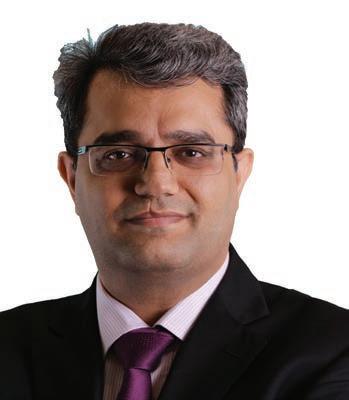
Management at Al Mal Capital explains that as robo-advisory adoption increases in the region, it can offer improved investment experiences and outcomes, beneficial to investors of all means
How apparent is the growth of robo-advisory services in the region?
Robo-advisory services are experiencing noticeable growth in the region, with numerous banks and financial institutions investing in and launching their own platforms. These services have garnered appeal from both investors and financial institutions due to their cost-effectiveness, accessibility and automated investment processes. Notably, several banks have introduced their branded robo-advisory services, and the emergence of digital banks in the region is expected to further accelerate this expansion. The high internet and banking penetration rates in the GCC region provide a solid foundation for the flourishing of robo-advisory services.
Additionally, the support from GCC governments towards fintech innovation and the ongoing evolution of regulatory frameworks to accommodate digital investment platforms, like robo-advisors, contribute to their growth prospects. As the GCC economies diversify and grow, there has been an increased interest in investment opportunities, and roboadvisory services provide a convenient and efficient way for individuals to access financial markets.
What do you place as the top two advantages of robo-advisory for investors when compared with traditional methods?
Robo-advisory services offer distinct advantages over traditional methods, primarily stemming from their ease of use, accessibility and cost-efficiency. These platforms operate round-theclock with minimal human intervention, providing investors with the convenience of managing their portfolios at any time
and from anywhere. The cost advantage arises from robo-advisors utilizing ETFs (Exchange-Traded Funds) for asset allocation, which helps in reducing fees and expenses. In contrast, traditional human financial advisors often impose higher management fees and minimum account balance requirements, which can deter smaller investors from seeking their services. By leveraging technology and automation, roboadvisory platforms significantly cut down on operational costs, enabling them to offer investment advice and portfolio management at a fraction of the cost compared to traditional advisors. Consequently, robo-advisory services have become more accessible and affordable, catering to a broader range of investors. This accessibility is particularly beneficial for busy individuals who may not have the time or desire to meet with a traditional financial advisor in person.
What do you place as the top two advantages of robo-advisory for asset managers and financial institutions when compared with traditional methods?
Rob-advisors leverage intuitive interfaces and algorithms to evaluate an investor’s risk tolerance, financial goals and time
horizon, thereby providing personalised investment recommendations and portfolio management. Robo-advisors rely on automated algorithms and digital technology to efficiently manage numerous client accounts simultaneously, offering scalability that allows asset managers and financial institutions to cater to a broader clientele without experiencing a proportional rise in costs.
Through their data-driven approach, robo-advisors gather and analyse vast amounts of data from their clients’ investment activities and preferences. This wealth of information furnishes asset managers and financial institutions with valuable insights into investor behaviour, risk tolerance and market trends. By leveraging this data, they can fine-tune their investment strategies, customise their services to better meet clients’ needs and make well-informed decisions on portfolio allocation and risk management.
Overall, these advantages empower asset managers and financial institutions to operate more efficiently, reach a wider audience and gain deeper insights into their clients’ needs and preferences, all of which contribute to their business growth and competitive position in the market.
Generational factors can have some impact on the adoption of robo-advisory, as different generations tend to have varying attitudes and comfort levels with technology and digital solutions. In our region, we have a relatively young and tech-savvy population, which is more open to embracing digital financial solutions. Younger generations generally have a higher comfort level with technology and are more likely to embrace digital solutions like roboadvisors. The older generations may be less familiar with robo-advisory platforms and might prefer traditional, in-person financial advisory services.
However, the overall acceptance of these services is influenced by a combination of factors, including financial literacy, cost, convenience, regulatory support, trust and market awareness. For example, investors of all generations are concerned about the security of their financial data and the reliability of robo-advisory platforms. Trust in the service provider and the security measures implemented can influence adoption. The level of awareness about
a broader range of investors, including non-high-net-worth (HNW) or massaffluent clients, offering potentially better investment outcomes. One key advantage lies in their lower fee structure, which reduces costs for investors and allows them to retain more of their investment gains. Additionally, roboadvisors employ automated algorithms to create well-diversified portfolios that align with each client’s risk tolerance and financial goals. This diversification is particularly beneficial for smaller investors who may lack the resources or expertise to achieve it independently. The automated nature of robo-advisory platforms allows investors to benefit from professional management without the need for extensive one-on-one interactions. Moreover, robo-advisory services offer lower minimum investment requirements, increased accessibility and personalised recommendations that were previously accessible primarily to HNWIs. The lower minimum investment amount eliminates the barrier to entry for non-HNW clients, allowing them to start investing with smaller amounts of capital.
robo-advisory services and their benefits also plays a significant role in adoption. Effective marketing and education about the advantages of robo-advisors can increase acceptance across different age groups.
Can robo-advisors offer noticeably better investment outcomes for non HNW or massaffluent clients?
Robo-advisors are designed to cater to
However, it’s essential to acknowledge that investment outcomes are still subject to market conditions and the performance of underlying assets. Robo-advisors typically use historical data to make investment decisions. Past performance may not always be indicative of future results and economic conditions can change, affecting the performance of assets differently than in the past. Robo-advisory services rely heavily on technology and digital platforms. Technical glitches, system failures, or cyber-attacks could disrupt the service and potentially compromise the outcome.
Nonetheless, the combination of cost-effectiveness, diversification, professional management and personalised approach can enhance the investment outcomes and overall experience for non-HNW investors using robo-advisory services. .
THE AUTOMATED NATURE OF ROBO-ADVISORY PLATFORMS ALLOWS INVESTORS TO BENEFIT FROM PROFESSIONAL MANAGEMENT WITHOUT THE NEED FOR EXTENSIVE ONE-ON-ONE INTERACTIONS
It’s safe to say that the region has become a breeding ground for fintech in general - we can’t speak specifically about robo-advisory without first considering the wider industry. Over the last few years, we’ve watched the fintech space grow and evolve into the competitive arena that it is today. Roboadvisory is definitely one aspect of this growth, as well as other services and platforms that are solving different pain points for the average investor. The region is maturing and learning more about how to leverage technology, and very recently, AI in order to bring money management services to another level.
One of the things we’re noticing more and more is the specificity of these services across the region. Fintech services vary across countries in the region and their differences are driven by technological infrastructure, different regulatory environments, investor preferences and so on.
In recent years, the adoption of robo-advisory services, though, has been particularly visible in wealth management due to several key advantages. Firstly, robo-advisors are known
for their cost-effectiveness. Traditional human financial advisors often charge higher fees for their services, which can eat into investors’ returns over time. In contrast, robo-advisors typically have
lower fees, making them an attractive option for cost-conscious investors. This cost advantage has been a significant driver of the growth of robo-advisory services, especially among younger and more tech-savvy investors.
Secondly, the accessibility and convenience of robo-advisory platforms have contributed to their growth. You can sign up in minutes online and fund your account easily. Investors can access their portfolios, monitor their investments and receive advice through user-friendly mobile apps and online platforms. This kind of accessibility eliminates the need for face-to-face meetings and allows investors to manage their portfolios on their own and in their own time. This convenience has broadened the appeal of robo-advisory services, attracting investors who may have been hesitant to engage with traditional advisors due to time constraints or a lack of familiarity with financial markets.
Now that said, investors in MENA are looking also to put their money to work in different ways and even though Sarwa started as robo-advisor, we quickly realised that there are many other products to offer
Mark Chahwan, Co-founder and CEO,
those who want to invest in technologies and companies they believe in. They also want to have one view of how their money is doing and be able to build emergency funds. At Sarwa, we quickly understood that investors crave this one-stop shop app where they can easily manage all their different investing needs.
What do you place as the top two advantages of robo-advisory for investors when compared with traditional methods?
There are two main advantages to a hands-off investing approach.
a. Cost-Effectiveness: One of the most prominent advantages of roboadvisory services for investors is their cost-effectiveness. Traditional financial advisors often charge a percentage of assets under management (AUM) as their fee, which can be relatively high, especially for smaller investment portfolios. Hands-off investing services on the other hand, typically charge lower fees, often in the form of a fixed percentage of AUM or a flat fee. This cost advantage can lead to significant savings over time, allowing investors to keep a larger portion of their returns.
b. Accessibility and Convenience: Platforms like Sarwa offer investors unparalleled accessibility and convenience. The digital nature of our platforms means that investors can access their portfolios anywhere with an internet connection, and not worry about rebalancing or dividend reinvesting themselves as these services are already taken care of. This is particularly advantageous for busy professionals and individuals with hectic schedules who may find it challenging to schedule regular meetings with traditional advisors. Additionally, the user-friendly interfaces of our platforms make them accessible to a wide range of investors, including those who might be new to investing.
What do you place as the top advantage of robo-advisory for asset managers and financial institutions when compared with traditional methods?
Scalability: Money management platforms offer a high degree of scalability for asset managers and financial institutions. Traditional advisory services often require a substantial allocation of time and resources, with processes that are redundant and can easily be replaced by technology. This limits the access to a wider market. With scale-ups such as Sarwa, however, we can handle larger client bases simply by optimising processes such as onboarding and KYCing. This scalability allows asset managers to reach a broader audience, ultimately boosting the overall business health and growth.
Is the acceptance and adoption of robo-advisory mostly led by generational factors?
While generational factors do play a role in the acceptance and adoption of roboadvisory services, they are not the sole determinants. Younger generations, such as millennials and Generation Z, have
continue to evolve, addressing concerns about security, transparency and customisation, older investors are becoming more comfortable using them. They are also realising that any decrease in fees reflects in a healthy way on the bottom line and net returns. Moreover, the accessibility and user-friendly interfaces of robo-advisory platforms make them appealing to investors of all ages, bridging the generational gap in adoption.
Can robo-advisors offer noticeably better investment outcomes for non-HNW or massaffluent clients?
Hands-off investing services have proven to offer significantly better investment outcomes for non-high-net-worth (HNW) or mass-affluent clients. These platforms cater to a wide range of investors by offering personalised investment advice and portfolio management at lower costs than traditional advisory services.
For non-HNW clients, the ability to access professionally managed portfolios with low fees is a game-changer. Platforms like Sarwa create diversified portfolios based on an individual’s risk tolerance,
grown up in a digitally connected world and are generally more comfortable with technology-driven solutions. As a result, they have been more open to adopting robo-advisory platforms as a convenient and accessible way to invest.
However, it’s important to note that older generations are also increasingly recognising the benefits of roboadvisory services. As these platforms
investment goals and time horizon. This level of personalisation ensures that non-HNW clients have a well-structured investment strategy that aligns with their financial aspirations and caters to their financial situations. Additionally, the automated nature of robo-advisors ensures that portfolios are regularly rebalanced to maintain the desired asset allocation, optimising returns over time
WHILE GENERATIONAL FACTORS DO PLAY A ROLE IN THE ACCEPTANCE AND ADOPTION OF ROBO-ADVISORY SERVICES, THEY ARE NOT THE SOLE DETERMINANTS

Islamic banking continues to experience high demand as the industry is projected to reach $4 trillion by 2026 and appears to be flourishing as new banks open in the region and around the world, and with the Middle East poised to create Islamic banking giants
lockstep with their conventional peers. “Accessing bank services digitally, issuing Sukuk on a digital platform, using blockchain technology and enhancing cybersecurity will be the three main factors to help improve the industry’s resilience,” said S&P Global.
With ESG concerns becoming a more prominent feature of global banking and finance in recent years, increased attention is being paid to the overlap of such standards with those set out in Islamic financing.
The global Islamic finance industry continues along its growth path . Growth in the sector is being driven by the continued standardisation of the industry, the robust appetite for Shariah-compliant products and the alignment of its financial instruments with environmental, social and governance (ESG) values.
S&P Global said the global Islamic finance sector hit a milestone in 2022, with total Shariah-compliant assets growing by
9.4% to pass the $3 trillion mark. Broadly similar growth is anticipated in 2023/24, fuelled largely by favourable dynamics in some core markets, solid growth among Islamic banks in the GCC region and a healthy Islamic bond market. Digitalisation in the Islamic finance sector is also creating a nimbler finance industry. Shariah-compliant banks are accelerating and strengthening the digitalisation of complex processes as well as end-to-end customer journeys in
ESG-linked Sukuk issuance remains limited despite the natural alignment of Islamic and sustainable finance, according to S&P Global. However, the trend is expected to change as corporate issuers try to align with investors’ demands and core Islamic finance countries accelerate their emissions reduction targets while supporting the global energy transition.
Sukuk issuance continues to be one of the key drivers of the growth of Islamic finance worldwide, second only to Islamic banking assets. Moody’s projected that
cross-border corporate Sukuk issuance will rise significantly from 2022 lows, with companies in the GCC region and Malaysia accounting for most of the issuance.
Meanwhile, the standardisation of the global Islamic finance legal and regulatory framework represents a huge opportunity for the industry to streamline as well as strengthen processes and practices to broaden the appeal of Shariah-compliant financial products.
Islamic banking accounts for the majority of the total global Islamic finance industry assets. The segment has developed at a steady pace, with non-core markets growing the fastest, and is likely to see further expansion with newer services.
“Islamic banking accounted for 70% or $2.8 trillion of total Islamic finance assets in 2021 and the GCC holds 43% of global Islamic banking assets,” according to Refinitiv data.
The increasing demand for financial products that align with the norms of Islamic law, consolidations in the GCC Islamic banking sector and proactive government legislation have supported the growth of the industry.
Kuwait Finance House (KFH) completed its $11.6 billion acquisition of Ahli United Bank last October – a rare cross-border merger that made KFH the secondlargest Islamic bank globally by assets behind Saudi Arabia’s Al Rajhi Bank.
The potential merger between Oman’s Sohar International Bank with Bank Nizwa is currently undergoing due diligence – there is no timeline for the expected finalisation of the deal. The merger is expected to boost Sohar International’s Islamic presence in the local market and support financing growth.
“The Omani Islamic banking sector’s market share is expected to rise steadily in 2023/24 after reaching 16.4% of total sector assets at end-2022,” said Fitch Ratings. The rating agency expects growth to be driven by sizeable public demand for Islamic products, supportive regulations, a growing branch network
and a push from conventional banks’ Islamic windows.
Outside core Islamic markets, the lack of a favourable regulatory environment in Africa, Europe and Asia is a major hurdle that has so far detracted from the success of Islamic finance there. However, Fitch said Bangladesh’s Islamic finance industry will likely continue to grow over the medium term, driven by rising public demand, new branch openings and conventional banks focusing on Islamic products.
Philippines’ Bangko Sentral ng Pilipinas plans to allow domestic and foreign banks to establish Shariah-compliant banking windows in the country. The central bank issued a draft circular in
first Islamic bank, Islamic Bank Australia. They received their initial restricted banking licence in July 2022 and aims for a public launch between 2023 and 2024. The digital bank is expected to capture the growing tech-savvy Muslim population in the country.
Refinitiv said the launch of Islamic Bank Australia follows similar moves in other non-core Islamic finance markets such as Germany and the UK. The UK is home to Nomo, the world’s first international digital Islamic bank that is backed by Kuwait’s Boubyan Bank Group.
Digital banks are also emerging in Islamic finance markets, in line with global trends, because of new licensing
– S&P GlobalJune 2022 towards a modified minimum capitalisation of conventional banks with Islamic banking units.
In Central Asia, the State Duma, the Russian parliament’s lower chamber approved, in July 2023, a bill allowing an experiment to introduce the Islamic banking system in the country’s four mostly Muslim-populated regionsBashkortostan, Chechnya, Dagestan and Tatarstan.
Other markets that will see further expansion in Islamic banking include Turkey, Nigeria, Algeria and Kenya.
Islamic banks operated in 77 countries in 2021 and the number is set to grow further with the licensing of Australia’s
frameworks that are being introduced by financial regulators. Unlike the incumbents, digital banks are not burdened by legacy infrastructure. The leading Islamic digital-exclusive banks in the core Islamic markets include Saudi Arabia’s D360 Bank and STC Bank and Bank Fama and Bank Allo in Indonesia.
The retail focus of most Islamic banks will likely help preserve their asset quality going forward as retail asset quality is particularly resilient, thanks to the high proportion of borrowers who work in the public sector, prudent regulations and established credit bureaus.
Sukuk remains the flagship Islamic Capital Market instrument and one of
ACCESSING BANK SERVICES DIGITALLY, ISSUING SUKUK ON A DIGITAL PLATFORM, USING BLOCKCHAIN TECHNOLOGY AND ENHANCING CYBERSECURITY WILL BE THE THREE MAIN FACTORS TO HELP IMPROVE THE INDUSTRY’S RESILIENCE
the fastest-growing sectors of the Islamic finance industry. The soaring interest rates, which deterred some bond issuers from tapping international debt markets in 2022, have made borrowing pricier and risks abound for overleveraged consumers, companies and countries.
Experts say lower and more expensive global liquidity, greater complexity related to structuring Sukuk and reduced financing needs for issuers – due to fiscal surpluses from higher oil prices – in some core Islamic finance markets will deter the market.
“The high oil prices have buoyed the fiscal profile of oil-exporting sovereigns like the GCC countries and Malaysia with lower funding needs. However, their drive to diversify funding sources can propel Sukuk growth,” says Bashar Al-Natoor, Global Head of Islamic Finance at Fitch Ratings.
S&P Global projected that global Sukuk issuance will total $160 - $170 billion in 2023, which is higher than its initial estimate of $150 billion, but still slightly below the figure in 2022. This year, Sukuk will likely be driven by the continued growth of sustainability-linked Islamic bonds, a surge in cross-border corporate Sukuk issuance and increased automation and digitalisation.
Al-Natoor projects that funding gaps will remain for oil importers such as Indonesia, Turkiye and Pakistan, which Sukuk could help plug.
Moody’s forecasted that crossborder corporate Sukuk issuance will be significantly higher in 2023 compared to the previous year. Growth will be driven by companies that postponed issuance in 2022, companies seeking to refinance near-term maturities and firsttime rated issuers looking to diversify funding sources.
“Despite challenging market conditions, cross-border corporate Sukuk issuances as of May 2023 doubled from the issuance volume in full-year 2022 to $5.2 billion,” says Maisam Hasnain, Moody’s Vice President and Senior Analyst.
Dubai-based Sobha Realty raised $300 million from its debut sale of
Islamic bonds earlier in July and property developer DAMAC sold a three-year $400 million Sukuk in April. Saudi lender Banque Saudi Fransi also raised $900 million from a five-year Sukuk in May while Dubai Islamic Bank issued a $1 billion fiveyear-long sustainable Sukuk.
Meanwhile, standardised supervision of Islamic finance is expected to lead to greater market confidence and restoration of its attractiveness to issuers. The tokenisation of Sukuk by leveraging blockchain technology is also expected to reduce the various costs associated with the issuance process— potentially opening the field to startups and SMEs.
Overall, the standardisation of Islamic finance will likely make the issuance of Islamic bonds comparable with conventional instruments from a cost and effort perspective. Smart Sukuk can also help generate more secure and immutable data while reducing the number of intermediaries involved.
The upcoming COP28 climate change conference in Dubai is expected to shed more light on the opportunities offered by Islamic finance and Sukuk to finance initiatives related to climate action.
UAE authorities have been encouraging issuers to raise green debt. In April, the Securities and Commodities Authority said companies would be exempted from listing fees on the local market this year for green or sustainability-linked bonds or Sukuk.
ESG-linked Sukuk is likely to persist as a key issuance theme in core Islamic finance jurisdictions as governments implement
initiatives that promote sustainability and economic diversification, along with rising investor demand and awareness.
S&P Global said the total volume of sustainability linked Sukuk jumped by about 50% in the first half of 2023 compared with 2022. The issuance volumes are expected to surge as issuers meet investor demands and core Islamic finance countries seek to reduce their carbon footprints.
Though not mutually exclusive, Shariah-compliant financial instruments offer a framework that embodies the social and ethical values of ESG investing, offering investors in the Middle East, Africa and South Asia (MEASA) region the opportunity to adopt more sustainable and conscious investment strategies. Sustainable debt covers a variety of instruments, from the well-established green bonds to the fast-emerging category of sustainability-linked loans. Proceeds from ESG-linked Sukuk typically support investments in renewable energy or other environmental assets such as solar parks, biogas plants, wind energy projects as well as renewable transmission and infrastructure projects.
The Islamic finance sector continues to gain momentum with borrowers and investors globally, driven by an increasing understanding of the asset class and a strong alignment of Islamic core principles with ESG principles. With the Islamic finance market expected to be valued at $3.69 trillion by 2024, the coordination between different stakeholders in the industry and the wider Halal economy will create new growth opportunities while contributing to shared prosperity.

Dr. Adnan Chilwan Group Chief Executive Officer at Dubai Islamic Bank sees Islamic Banking moving into a leading role in global markets with growing use of Islamic financial instruments, stronger economies in Islamic majority nations and its innate values lined up with many of today’s key concerns.

By Q2, 2023, global Sukuk issuance grew by 10% QOQ, while bond issuance reduced. What does this signal about the status of Islamic finance in the world today?
As Islamic finance grows around the world, so too will many of its financial instruments. Sukuk is a particularly interesting example, with issuances surging by 39% to reach $250 billion in 2021 and then $915 billion by the close of 2022. The recent QoQ growth of 10% reflects a continued surge in Sukuk issuance around the world driven by issuer’s funding requirements on the back of a recovering domestic and regional economies. In particular, there has been an increasing trend on sustainable issuances from large corporates as favourable regulations were witnessed in the GCC region and as more corporates issue their sustainable finance framework.
The trend is mirrored at Dubai Islamic Bank (DIB), and in Q1 2023, the Bank successfully issued a $1 billion Sustainable Sukuk, which was created to facilitate the financing of green and social initiatives and projects. In total, the bank has now issued USD 1.75 billion since the publication of its Sustainable Finance Framework during the summer of 2022.
As the largest Islamic Bank in the UAE by assets, DIB is continuing to spearhead the traditional Sukuk and sustainable Sukuk segments.
The rising global rates have impacted the global bonds issuances as we see Central Banks try to control inflation levels. Sukuks generally attracts a more diverse investor base giving Islamic finance an advantage over conventional issuers.
If one considers the total global picture, we are clearly seeing an exceptional
and fast-growing appetite for Sukuks and a slight dip in conventional bonds. This points towards a general sense of market resilience despite the myriad of global geopolitical and economic issues markets currently face.
Globally, with sovereigns as the main issuers, outstanding Sukuk volumes passed 800 billion USD. What does this say about Islamic world economies?
Islamic economies those particularly in the GCC region as well as Central and Far East Asia have grown and developed into strong economies. These markets have throughout the years developed their regulations to support and develop the growth of Islamic finance. Over the recent years, we have seen a lot of green and sustainable sukuks being issued as well as international economies align and commit towards achieving the UN SDGs. For Sukuks to rise and conventional bonds to fall during a time of global rate volatility is perhaps unsurprising. As an Islamic alternative to traditional bonds, Sukuk involves direct ownership of an asset – yet the performance of conventional bonds is related to interestbearing debt. Essentially, Sukuk is not speculative, which means that they are inherently more transparent, stable and sustainable. It is unsurprising, therefore, that investors are looking for greater stability during the current global economic situation.
Sovereign issuances – particularly in countries whose governments are implementing major public investment schemes - offer an even more robust and predictable long-term return for investors. Even outside of the GCC region, we see countries issue their first-ever sovereign sukuks. A great example - Egypt, which sold $1.5 billion – with a subscription value of around $6.1 billion. Investors from around the world participated, including
from Europe, the GCC and East Asia –demonstrating soaring global interest in sovereign sukuk issuances.
Digital banking solutions, products and platforms deliver greater choice, security and financial inclusion because they are inherently more democratic in their accessibility. Indeed, the importance of digital banking is reflected in multiple policy frameworks from the UAE government. The UAE Central Bank (CBUAE) Financial Infrastructure Transformation Program sets out to help financial institutions to transform their business models to achieve a safe, robust digital transformation of the financial services ecosystem. Islamic finance is part of that journey – and we have seen through our own work how rapidly customers pivot toward the adoption of digital platforms and payment solutions.
The popularity of Dubai Islamic Bank’s (DIB) digital solutions is reflected in the fact that the Bank has been consistently recognised as leading the evolution of digital Islamic finance. In 2022 we received the ‘Best Digital Innovation in Islamic Banking of the Year’ award and the ‘Best Islamic Fintech Solutions Implementation’ from the MEA Finance Banking Technology Awards.
DIB also utilises digital solutions to ensure that the Bank meets its regulatory requirements – including an entirely digitised know-your-customer (KYC) journey, which came about through our collaboration with the UAE Ministry of Interior in 2022. We have also recently announced the integration of DIB ‘ alt ’ services on mobile and internet banking with UAE PASS, the first secure unified national digital identity solution for the UAE. DIB ‘alt’ is full service digital banking that enables customers to fulfill day-today banking needs through accessible and convenient digital channels with +135 services available through the DIB
‘ alt’ mobile, DIB ‘ alt’ online, DIB ‘ alt’ on WhatsApp or via any DIB ATMs.
The annual COP meetings act as a major platform for all aspects of environmental action and for organisations that wish to leverage the events for the greater good. For Banks such as DIB, such initiatives draw our attention to the responsibility that we have toward building sustainable finance products, solutions and strategies which impact investor attitudes and resonate across corporate and business sectors.
Banks in GCC countries increasingly benefit from robust regulations that protect the sector and help them to manage risk effectively – this is especially important for Islamic financial products and services that are built upon Shariah principles of fairness, stability, transparency and sustainability. Islamic banks benefit, therefore, from the work that central banks are playing in protecting the banking system. When one considers the action of the CBUAE, it becomes that clear that policymakers recognise vulnerabilities to the global system – which include inflationary
The DIB Sustainable Finance Framework sets out a pathway to delivering Shariah-based sustainable financing alternatives and also serves as an opportunity for us to raise awareness of the inherent qualities of Islamic banking and finance. And we are leading by example. Building upon our Sustainable Finance Framework and in alignment with the Bank’s corporate sustainability strategy, DIB has been actively leading the evolution of sustainable financing. In Q1 2023, the Bank successfully issued a $1 billion Sustainable Sukuk, which was created to facilitate the financing of green and social initiatives and projects.
Islamic finance is deeply rooted towards sustainable and ethical business practices and with the upcoming COP28 UAE meetings to be held by end of this year, the industry is set to unlock further growth opportunities in achieving the UN global SDGs.
pressures and a tightening of financial conditions that could affect debt servicing costs and demand for new credit.
The recent adoption of regulators towards developing sustainable finance frameworks including climate related financial risks and advancement of Islamic sustainable finance paves the way for further progress of the region. The upcoming COP28 UAE will be a momentous event that will see various sectors, policy makers, regulators and the private sector converge to discuss and embrace new opportunities.
The UAE regulatory framework ensures that the UAE banking system maintains significant resilience because of its favorable funding and liquidity position, which leaves the overall system wellcapitalised. Commenting on its ongoing stress tests, the CBUE indicated in its 2022 annual report that the UAE banking system is significantly capitalised to withstand adverse scenarios such as rising inflation and global market uncertainty.
FOR SUKUKS TO RISE AND CONVENTIONAL BONDS TO FALL DURING A TIME OF GLOBAL RATE VOLATILITY IS PERHAPS
Hisham Hammoud CEO, Aafaq Islamic Finance is clear about the arrival of Islamic Finance as a mainstay of the global banking and financial scene.
By Q2, 2023 global Sukuk issuance grew by 10% QOQ, while bond issuance reduced. What does this signal about the status of Islamic finance in the world today?
The surge of 10% in global Sukuk issuance in Q2, 2023, compared to a decline in bond issuance, holds profound implications for
the contemporary landscape of Islamic finance. The escalating recognition of Sukuk’s intrinsic strengths, such as their ethical foundation and risksharing mechanisms. Investors are acknowledging these advantages, leading to a notable increase in Sukuk allocations and the decline in bond issuance indicates a potential re-evaluation of conventional financial instruments.
The statistics underscore a broader narrative of Islamic finance’s ascendancy. Its consistent growth showcases its integration into the global financial mainstream. The shift towards Sukuk aligns with investors’ quest for diverse, ethical and resilient investment avenues. In the face of economic uncertainties, Sukuk’s robust performance not only highlights its durability but also positions it as a pivotal player in shaping the future of finance.
Globally, with sovereigns as the main issuers, outstanding Sukuk volumes passed 800 billion USD. What does this say about Islamic world economies?
The achievement of over 800 billion USD in global outstanding Sukuk volumes,

primarily driven by sovereigns, carries significant implications for Islamic world economies. This milestone underscores Sukuk’s growing acceptance as a potent financing tool for both governments and corporations. The involvement of sovereigns highlights a strategic diversification of funding sources to support economic expansion and essential infrastructure projects. With the substantial outstanding Sukuk volumes surpassing 800 billion USD, the Islamic finance sector within these economies is not only solidifying financial stability but also adhering to ethical financial practices, setting a distinctive global standard. In summary, the remarkable feat of over 800 billion USD in Sukuk volumes, largely attributable to sovereigns, underscores Islamic finance’s role in propelling economic growth, fostering financial resilience, and embracing sustainable financial principles.
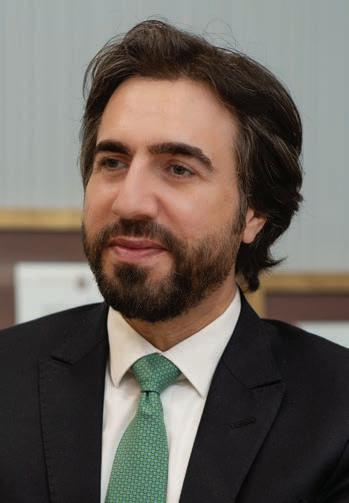
Absolutely, the digitalisation of Islamic finance is unequivocally fuelling its growth in transformative ways.
underscores the effectiveness of digitalisation in broadening our reach and streamlining processes. Furthermore, digitalisation is becoming the backbone of Islamic finance’s growth, fostering accessibility that aligns with the ethos of fairness and equal opportunity.
Is attention on COP meetings building wider awareness of the inherent ESG qualities of Islamic banking and finance?
The attention directed at COP meetings is undeniably heightening awareness of the inherent ESG qualities within Islamic banking and finance. The ethical foundation of Islamic finance naturally aligns with ESG principles. With the increase in total assets globally in 2023, its influence is substantial. This alignment is leading to a more profound exploration of Islamic finance’s positive contributions in line with ESG objectives. In terms of financial instruments, sustainable Sukuk issuance has continued to surge, reaching 800 billion USD in 2023. This impressive figure underscores the growing convergence between Islamic finance and ESG priorities. In summary, the spotlight on COP meetings is effectively showcasing Islamic banking and finance as a proponent of ESG values, supported by the total volume of sustainability-linked sukuk increased by about 50 per cent annually in the first half of 2023.
How can regional regulatory activities assist in the further adoption of Islamic financial instruments?
At Aafaq, we’ve experienced first-hand the monumental impact of this shift. Digital platforms have expanded accessibility, allowing a wider audience to engage with Islamic financial products. Aafaq’s 100% increase in digitally onboarded customers
This wave of digital transformation is also driving innovation. Emerging digital Islamic financial products cater to the preferences of tech-savvy consumers and investors, revitalising the landscape of Islamic finance.
Regional regulatory actions play a crucial role in fostering the broader acceptance of Islamic financial instruments. In 2023, the orchestrated regulatory reforms have yielded a 10% surge in Islamic bonds (Sukuk) issuance within our region, contributing to the substantial global total Sukuk issuance of $800 billion. The “Islamic Finance Enhancement Program” stands as a testament to our commitment, fortifying Sharia compliance and unifying practices. This resonates with both local and foreign investors, culminating in a remarkable 15% increase in foreign investments. In summary, regulatory efforts that prioritise transparency, standardisation and investor safeguarding are pivotal in propelling the utilisation and growth of Islamic financial instruments.
THE ATTENTION DIRECTED AT COP MEETINGS IS UNDENIABLY HEIGHTENING AWARENESS OF THE INHERENT ESG QUALITIES WITHIN ISLAMIC BANKING AND FINANCEHisham Hammoud, CEO, Aafaq Islamic Finance
Jamal Saleh Director General of the UAE Banks Federation, provides detailed insights into the main objectives, key concerns, the bold successes and the contribution that the proficiency of the UAE’s banks and the Federation make to the establishment of the nation as a global financial hub
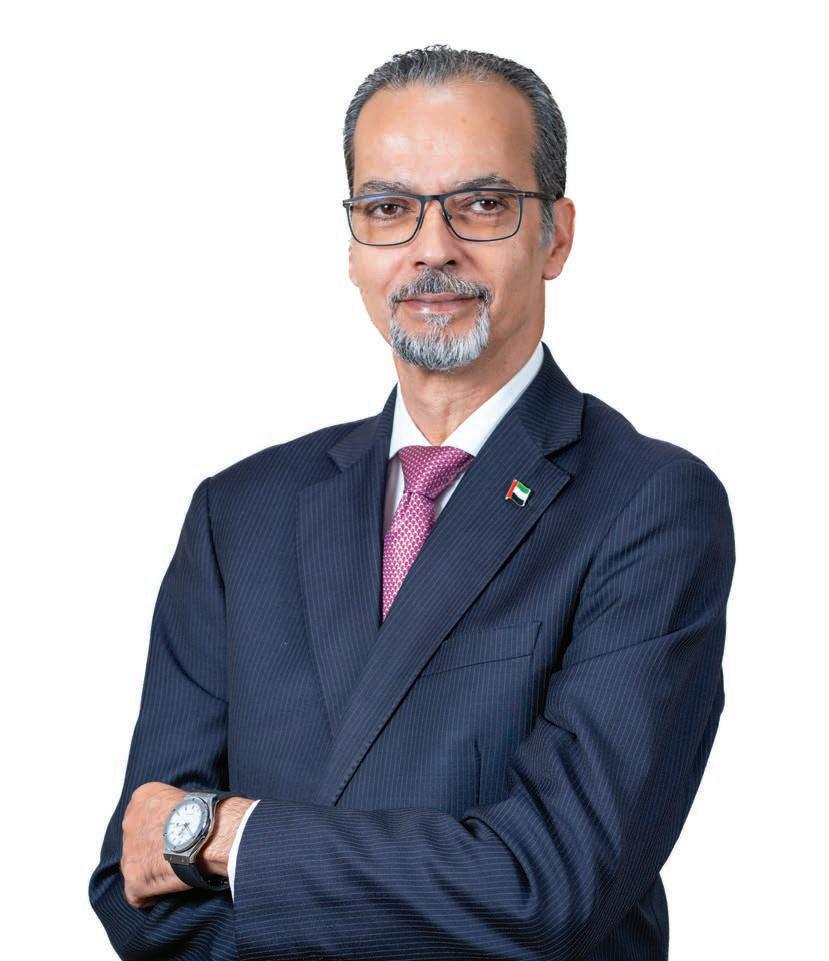
What is currently topof-mind at the UAE Banks Federation?
As the sole representative and unified voice of UAE banks, we at UAE Banks Federation (UBF) are always guided by a major responsibility that is entrusted to the Federation, which can be summarised as enhancing the cooperation among UBF member banks to upgrade the banking sector for the benefit of the overall financial sector and the UAE national economy.
Our primary mandate is to fulfil UAE leadership’s strategic vision of cementing the UAE’s position as one of the forefront developed economies, as well as Central Bank of the UAE’s objectives of ensuring that the UAE financial sector remains resilient and most compliant. This is achieved through driving the adoption of innovative practices and through the implementation of advanced solutions in the financial and banking sector to enable the members of the sector to play a
vital role in socio-economic plans, meeting customer needs, as well as the protection thereof, placing human development requirements (especially the Emirati cadre), sustainability and compliance to local and international regulations at the centre of all efforts and initiatives.
UBF’s 2023 strategy includes focused plans to advance sustainability and digital transformation to strengthen the position of the sector globally under Central Bank of the UAE’s direct supervision. This strategy includes increasing Emiratisation, which is a top priority for us.
In addition to compliance, resilience and customer service, we continue to work with our member banks, under the guidance of Central Bank of the UAE, to foster and accelerate digitalisation efforts while contributing positively to the technical advancement of the financial sector.
We stay focused on promoting a conducive ecosystem to ensure that our banking sector is meeting the growing needs of all retail and institutional customers in a safe, convenient and seamless way. Doing so entails various campaigns and initiatives on the part of UBF, including raising awareness, training and upskilling, keeping pace with latest solutions and technologies, and regularly updating systems and practices that are in place to ensure members’ adherence to rules and laws.
What are UAE banks doing to combat the proliferation of fraud in today’s digital environment?
Digital interactions between banks and customers are becoming the primary mode
of transactions in the UAE, which is a leader in digital transformation. The rate of use of digital banking services in a number of banking channels has risen to almost 100% penetration, reflecting the impressive advancements and investments that had been made by the UAE, and by our member banks in deploying latest technologies and affirming customer confidence in the levels of security of these services.
This remarkable progress was achieved in line with the strategic vision of the Central Bank of the UAE , which is emphasised by Central Bank’s proactive approach in setting the appropriate framework to keep abreast of technological developments, as well as its support of the banking sector in developing innovative solutions in order to provide best services to all customers in a secure, reliable and easy-to-use environment.
Globally, digitisation has enabled banks and customers to conduct transactions in a faster and more convenient manner. But that has also brought an undesired challenge in the form of cyber criminals and scammers, who target not only customers, but also banks.
Thankfully, UBF member banks have been at the forefront of implementing risk management practices cybersecurity strategies and safety policies, all of which are in line with global standards, to face evolving frauds.
At UBF, we have taken a multi-pronged approach to educating customers, increasing our banking sector’s capabilities in identifying and tackling fraud and cyberattacks.
Last year, and for the 2 nd year in a row, we organised the region’s largest cybersecurity exercise, called ‘Cyber Wargaming (CWG)’. The exercise, which was held as a full event under the direct supervision of Central Bank of the UAE, was based on multi-simulation experiments to learn about the responsiveness of cybersecurity teams in dealing with attacks and discovering strengths and gaps through tackling virtual challenges developed by experts in the field.
This year, Cyber Wargaming (version 3) will be larger and deeper than ever before. This event (CWG) is part of our innovative efforts to enhance cybersecurity through understanding and implementing best practices and advanced systems while ensuring the stability and flexibility of the financial system in the UAE.
Knowing that sharing experiences among member banks helps in strengthening capabilities to deal with cyber threats, we facilitate efforts to enhance knowledge-sharing and collaboration, which is reflected in our establishment of 3 technical committees under UBF for information technology, information security and digital banking services.
We also know that it is equally essential for customers to stay updated and encourage them to take extra caution regarding their financial information. To that, our annual “Fraud Awareness Campaign,” which has been running annually for the last 4 years, aims to raise public awareness on issues such as phone and email fraud, vishing, phishing, social engineering, business email compromise, digital banking and e-commerce security. The initiative, i.e., the Awareness Campaign, is supported by the Central Bank of the UAE, Abu Dhabi Police, Dubai Police, TDRA and UAE Cyber Security Council, and has been running since the beginning of 2020.
With increasing pressure to deliver speedy or even instant payments, loans and account openings, will banks have to factor in a low level of fraud to remain competitive?
Banks, in fact, already have to balance providing quick service and being tightly secure. Security is of utmost importance to UBF when it comes to protecting personal information and customer accounts, but it could be argued that deploying tightly secure solutions strategically often impacts customer experience, and vice versa.
Our target is to have seamless service and robust security at all times. But there is no silver bullet to address this issue. It needs to include a full review of processes, a nationwide customer education, new skills upgrade and latest technology adoption, especially considering that customer’s expectations always evolve.
Together, all the above will reduce risk. Moreover, advanced technologies, like Artificial Intelligence (AI) and particularly Machine Learning (ML) for transaction profiling, can help predict emerging types of fraud and strive to stay one step ahead of attackers.
Most UAE UBF member banks stipulate standards that govern all aspects of fast payments, such as security, processing or technical requirements, which payment providers must meet. At the same time, our members also provide customers with additional safety through 2-factor authentication.
Given the crucial role that financial institutions play in shaping businesses and industrial advancement, the integration of environmental, sustainability and governance into their decisionmaking processes is, in our view, vital. COP28 will provide a platform for global discussions and actions on climate change, and the UAE hosting the event will enable our banking sector to engage with international stakeholders, allow the exchange of best practices and facilitate the establishment of partnerships to accelerate the implementation of sustainable finance initiatives.
The UAE banking sector has always been aligned with global trends by integrating environmental, social and governance (ESG) into its strategies.
According to a KPMG report, green and sustainability-linked bonds and loans are tipped to be one of the fastest-growing segments driven by growing demand from consumers and investors for more ethical and sustainable products.
The UAE has set ambitious decarbonisation goals to reduce greenhouse gases by 25% by 2030 and achieve net zero emissions by 2050. In line with this strategy, there are initiatives from Central Bank of the UAE and UBF member banks to promote sustainability under United Nations Agenda for Sustainable Development guiding principles. One of our latest reports found a collective green financing effort of UD$51.8 billion by 6 of our major UBF member banks (FAB, ADCB, ENBD, DIB, Mashreq, ADIB) until 2022, showcasing the sector’s dedication to sustainability.
Transforming to a green economy requires the banking and financial sector to direct capital towards sustainable and climate-resilient investments. To this end, the UAE have issued sustainable finance declarations in 2016 and 2019, and at the federal level, the UAE published a set of Guiding Principles on Sustainable Finance to catalyse the development of a market for green finance and ensure consistency across the sector in January 2020. We work under the direct guidance and full coordination with Central Bank of the UAE to further enhance UAE’s sustainable banking and finance drive in the region. Moreover, UBF has entered into a cooperation agreement (MOU) with UAE Securities & Commodities Authority (SCA) to establish an integrated framework for the financial sector to promote local investment fund industry, including green and sustainable funds.
UAE banks have been performing astoundingly well amid challenging conditions in the global economy. By the end of Q1-2023, the aggregate net income of UAE’s top 10 lenders surged
by 35%, Q-on-Q, to over Dhs18bn, driven by enhanced cost efficiencies and lower impairment charges.
UAE banks’ international expansion started in the 1970s, and many of our leading national banks have been operating regionally and internationally. In addition to physical presence, UAE banks’ global recognition is on the rise, bolstered by our members’ pivotal role in digital transformation, innovation and UAE’s transition towards sustainability and net-zero goals.
As the UAE strengthens its position as a financial hub, the country’s prospects for growth and international recognition are promising. Digitalisation and sustainability of the banking sector will continue to play a crucial role in preserving the long-term competitiveness and resilience of our financial system and national economy. Consequently, it is only a matter of time before the names or acronyms of our local member banks become fully recognised everywhere outside the UAE.
How will UAE’s banking landscape look when UBF celebrates its 50th anniversary in 2032?

This question was asked when UBF celebrated its silver jubilee, i.e., its 25th anniversary in 2007, and also before that on UBF’s 20th anniversary in 2002.
If we look at history, we have grown since 2002 by almost 1200%, from USD 75 billion in 2002 to over USD 900 billion in 2022. A growth over the same 20-year span that is unprecedented globally.
As the GCC region moves toward a more sustainable and digital future, UAE banks will have a vital role to play. And we see UBF being one of the main enablers for future growth, working under the close guidance of Central Bank of the UAE. The key is for UAE banks to be at the forefront of digital transformation and innovation, while supporting the broader economic transition towards environmental sustainability and national net-zero emissions goal by 2050.
The UAE has successfully positioned itself as a financial hub, and most of the leading global financial institutions maintain a presence in the UAE, which is promising. So, by 2032, we endeavour to be one of the most recognised, but will surely strive to be the most innovative, sustainable and safest banking destination.
In the forty-plus years since your inception, can you identify a period in that time that has been the most intense, challenging and exciting for banking in the country?
More than one springs to my mind, which is because the UAE banking industry plays a vital role in the country’s development. Driven by Central Bank of the UAE’s foresight and regulatory reforms, the UAE has bolstered its economic stability and advancement. However, the past four decades have seen some of the most challenging, but at the same time monumental developments in the UAE. Despite great challenges, assets of our UAE banking sector have grown, as said above, by a factor of 12X. the UAE has one of the largest economies in the region and the most advanced in technology implementation with its banks posting a near 100% penetration in some digital services adoption by customers.
UAE economy has proved its robustness and resilience in facing challenges that followed global ups and downs.
The global economic downturn during 2008-2009 Global Financial Crisis stands out as a defining phase for our UAE banking sector. However, such challenge has also became the reason for raising our level of risk management sophistication and adopting innovative strategies, embracing digitalisation and building future resilience for our UAE banking.
Nevertheless, what comes to my mind more than the challenge of 2008-2009 is that of early 2020. When Covid-19 hit the world, and all countries had to shut down, we faced a day when we were informed to work from home and physical access to offices became unfeasible. However, we had to innovate quickly to make sure that bank customers, especially borrowers, are not affected and are given a breather on their borrowing instalments. We also had to find a way to maintain banks running to continue to service their customers’ needs. And member banks had to make sure that ATMs were kept running and be replenished with banknotes. Therefore, and under the close supervision and directives from our Central Bank, UBF and its banks had to amass great efforts from each and every member to meet the aforesaid challenges as well as implement the directives of Central Bank on what later became known as the TESS Program (the Targeted Economic Support Scheme), which saw the Central Bank and the leadership of the UAE support the economy to the tune of AED 259 Billion, which was a key reason as to why the UAE was able to navigate through the duration of Covid-19 pandemic with far less effects on the people of the UAE, be it citizens or residents alike, compared to other countries.
Covid-19, in addition to past challenges, such as that of 2016 oil crisis, have pushed for our acceleration of digitising our member banks’ services, therefore becoming the country that is at forefront positions whenever and whenever the matter counts.
Our banks, and the Federation itself, drove remarkable adaptation of technology and innovation, implemented
digital transformation and provided alternative customer service channels, and therefore resulted in us now living a most exciting phase for our banking sector, filled with digitalisation projects, fraud prevention initiatives, with robust regulatory and sustainability aims at its core, therefore enhancing banking and financial sector’s role in benefiting all customers. None of that could have been done without the close supervision and guidance from out Central Bank of the UAE and its foresight of challenges faced or to be.
UBF has a most pivotal role in indirectly bolstering the national economy through its concerted efforts in working with all its members on adopting and implementing international compliance standards and best practices. Our member banks, under the direct supervision of Central Bank of the UAE, work together through UBF towards enhancing their banking services and their adoption of regulations and compliance therewith, all of which is to meet highest standards in serving customers. UBF coordinates between its members towards safeguarding the integrity of the UAE’s financial sector, and relentlessly works to fully support Central Bank’s efforts to maintain a secure and transparent financial environment and fight financial crimes, money laundering, and fraud.
Additionally, to ensure that its members stay well-informed about latest
compliance requirements and regulations, UBF collaborates and coordinates with many organisations and regulatory bodies. This proactive UBF engagement equips our banking sector with all the necessary tools and knowledge to implement effective measures.
The approach followed by UBF’s 28 technical committees, who delve deep into challenges related to all aspects of banking, such as compliance, antimoney laundering (AML) or data privacy, underscore UBF’s commitment to elevate all standards and to create a more secure and robust financial landscape.
For over four decades, the progressive steps in digitalisation, fraud prevention and sustainability initiatives of UAE Banks Federation have further solidified UBF’s role in maintaining the UAE banking sector’s leading position, mainly through its championing of multi-initiatives that equally benefit its member banks, their end consumers and the overall economy. UBF continues to endeavour, and to be a driving force in promoting and fostering the growth and resilience of the UAE’s banking industry, hand in hand with all UBF partners, the first of whom is Central Bank of the UAE, but also include UBF’s premier partners, such as Securities & Commodities Authority (SCA), Ministry of Finance, Ministry of Economy, Ministry of Justice, Etihad Credit Bureau, Emirates Institute of Finance, Abu Dhabi Police, Dubai Police, UAE Cyber Security Council, Dubai Courts, Abu Dhabi Courts, Telecommunication & Digital Regulatory Authority (TDRA), Federal National Council, DIFC and ADGM, the ministry of Social Development, and many many more
CONSEQUENTLY, IT IS ONLY A MATTER OF TIME BEFORE THE NAMES OR ACRONYMS OF OUR LOCAL MEMBER BANKS BECOME FULLY RECOGNISED EVERYWHERE OUTSIDE THE UAE

Real estate is a significant sector in the UAE but the new corporate tax law was initially silent on many aspects of the real estate businesses. A recent cabinet decision has clarified the taxation of revenue deriving from real estate for companies and individuals
A natural person who owns property in the UAE may be subject to taxation under the provisions of Cabinet Decision No. 49 of 2023 if the activity is related to any licensed commercial activity. For example, one of the activities that are subject to license and might apply to privately owned property for
investment purposes is “Leasing and Management of Self-Owned Property” (Activity code no. 6820011).
According to this decision, businesses or business activity of a natural person, be it a resident or a non-resident, are subject to corporate tax if the turnover derived from such activities exceeds AED 1M within a calendar year.
On the contrary, if the activity of the natural person is an investment
Patryk Karczewski Partner, Head of Tax Practice, Amereller
activity that can be conducted without a commercial license that relates to (directly or indirectly) the sale, leasing, sub-leasing and renting of the real estate, then the income from such activity is non-taxable.
Each Emirate has its own laws in regard to real estate business. Hence, natural persons should closely monitor business
licensing laws in the Emirates where they hold their properties to properly assess tax implications on the income received from the real estate.
For a company that owns real estate, there are three categories of property that are treated differently:
Non-commercial property
Commercial property inside a free zone
Commercial property outside a free zone (on the ‘mainland’)
For non-commercial properties, which includes real estate that is used nonexclusively as for a business or business activity and properties used as a place of residence or accommodation including hotels, motels, bed and breakfast establishments, serviced apartments and the like, the income attributable to such property will be subject to corporate tax at 9% as a rule.
For example, if your business holds residential property in a Free Zone (e.g., in DIFC) and you rent it out to your employee as part of his employment package (typically by withholding housing allowance in lieu of collecting rent), then such rental amount will be added to your taxable income and subject to the standard rate.
If the property is commercial and in the Free Zone, then the treatment will be different for owners that have the status of a Qualifying Free Zone Person (QFZP) to those that are treated as typical taxpayers.
Recently, the Ministry of Finance held a Public Consultation regarding the corporate tax regime for Free Zones, allowing businesses and other interested parties to submit their feedback on the promulgated corporate tax rules pertaining to Free Zones by the 9th of August 2023. Hence, it cannot be excluded that certain changes will be introduced to the legislation in the near future.
As described in the Federal DecreeLaw no. 47 of 2022, the Qualifying Free
Zone Person can apply a 0% corporate tax rate to the income that is described as the Qualifying Income. The entity must meet the following conditions to be able to apply for the QFZP status:
The taxpayer maintains adequate substance in the State.
The taxpayer derives the Qualifying Income as defined by the CD No. 55 of 2023 and the MD No. 139 of 2023.
T he taxpayer has not elected to be subject to corporate tax at a standard rate of 9%.
The taxpayer trades with Related Parties at an arm’s length principle
income sourced from such activity will be considered as the Qualifying Income and subject to corporate tax at 0%.
In any other case, i.e., transacting party is established outside the Free Zone, or the owner does not meet conditions for the QFZP (or made an election to be a regular taxpayer despite meeting conditions for the QFZP status), the income sourced from the commercial property located in the Free Zone will be subject to corporate tax at 9%.
The above is summarised in the below table for ease of reference:
Predominantly non-taxable**
Non-commercial Predominantly non-taxable**
Free ZoneCommercial Predominantly non-taxable**
Non-commercial Predominantly non-taxable**
Predominantly non-taxable**
Non-commercial Predominantly non-taxable**
Free ZoneCommercial Predominantly non-taxable**
Non-commercial Predominantly non-taxable**
and maintains the transfer pricing documentation.
The taxpayer prepares audited financial statements.
The taxpayer observes de minimis requirements.
If the owner has the status of the QFZP and the other transacting party is also established in the Free Zone, then
We at AMERELLER TAX can help you properly assess your obligations resulting from owning a property in the UAE. Taking into account the significant amounts that can be generated by real estate, it is important for the owners to understand and comply with the new tax regulations related to those assets.
Please summarise
National Bonds is a Shari’acompliant savings and investment company owned by the Investment Corporation of Dubai, established in 2006.
Our objectives are centered on elevating people’s financial well-being, while contributing to the UAE’s vision of economic diversification. To achieve these goals, we work towards enhancing financial literacy and encouraging wealth accumulation by offering innovative savings and investment solutions for both individuals and corporations.
We also cater to the community’s aspirations through our real estate arm, National Properties, and have developed projects across the UAE as part of our fund deployment strategy. These innovative projects provide the highest standard of living and offer customers, from all walks of life, excellently maintained and welllocated properties.
Individuals’ welfare is at the core of our beliefs, and we are working with various business partners for the betterment of society. We have launched several successful initiatives, such as “Al Manasah” Sukuk Trading Platform, an innovative Shari’a compliant digital
platform providing liquidity to support Sharia-compliant banking institutions with Murabaha financing for their retail & corporate customers ,“Sukuk Al Waqf”, which supports people in need, the Dubai “Green Fund” participation for a sustainable environment, as well as our investment in the second largest public educational player in the UAE “Taaleem” Holding Group; to ensure a formidable foundation for the education of future generations.
Since the inception of National Bonds in 2006, the landscape of savings and investments has undergone a significant evolution. Initially, we started by offering savings bonds, following which the company swiftly diversified its product range to cater to different customer objectives and aspirations, including employee savings programs, retirement, end-of-service capital growth and objective-based savings.
Our agile and robust investment strategy aims to optimise returns for bondholders while safeguarding their capital against economic headwinds. Our proven track record over the last
17 years and consistent distribution of competitive profits are evidence of our strategies’ effectiveness.
In 2022 we witnessed another strong year in which National Bonds investment portfolio soared to AED 13.7bn ($3.7 billion), a 15% increase compared to the previous year, which is a testament to the customers’ ever-increasing confidence in the company and its offerings.
Our product portfolio boasts a mindful expansion, catering to both individual and corporate needs. This segregation ensures that distinct requirements are met effectively. For instance, we introduced ‘Tejouri Al Emarateyat’, a program for Emirati Women, while “Global Savings Club” and “Golden Pension Plan” are customised for corporates.
Complementing these solutions is our rich AED 35 million rewards program, which is specifically designed to encourage and reward consistent savings behavior amongst all segments of society. In parallel, we have heavily invested in our digital solutions, designed to enhance the customer experience and facilitate a seamless savings journey.
Over the years, there has been a shift in the perception of risk associated with investments. Most investors are now more open to a diversified portfolio that includes
a mix of assets, while shrewd ones seek personalised investment solutions that align with their risk tolerance, goals and values. This demand has led us to develop innovative solutions and services tailored to individual preferences.
As we approach the one-year mark since the launch, we are pleased to report a strong and promising growth in demand. The “Golden Pension Plan” has resonated well with our target audience, addressing a critical need for retirement planning and financial security in the UAE. Furthermore, this initiative offers an additional avenue for corporations to elevate their employee retention strategies.
The demand for this program has exceeded our initial projections, indicating a robust appetite among corporates to secure the best retirement benefits for their employees. The program’s unique combination of an investment component with a pension focus has captured the attention of both organisations and those new to financial planning for the future.
In addition to boosting end-of-service benefits, employees who are signed up for the “Golden Pension Plan” also enjoy entry into the National Bonds’ AED 35 million Rewards Program.
According to the 12 th edition of the National Bonds Savings Index, proprietary research, 82% of employees in the UAE are open to employers investing their end-of-service funds, which affirms the importance of the Golden Pension Plan and National Bonds’ strategic objectives to offer all customers the tools they need to secure their future.

In line with our objective of crafting flexible programs, we launched the “Second Salary Plan” as an integral part of our long-term commitments. This program
offers customers, both UAE Nationals and Expats, the ability to generate supplementary income.
According to our recent National Bonds Savings Index, 76% of the young population are thinking about saving and investing in the UAE, particularly those aged (21-29), which illustrates the fact that financial literacy is increasing amongst the younger generation, and they are now more savvy about securing their future.
The Index also states that 68% of those who have not saved yet plan to save soon, and 52% expressed their intention to increase investment in financial products within the next two years.
Our “Second Salary Plan” is an innovative and flexible solution that gives customers the ability to save monthly for a period ranging from 3-10 years with the option to deposit a lump sum amount as and when they want, to boost their accumulated funds. After this ‘savings period’ is complete they receive their principal amount and the accumulated profit as a monthly income, also for a chosen period of time.
Ongoing digital transformation, in line with new technologies and innovations to provide an elevated customer experience and empower the team to deliver on promises to stakeholders is vital to us.
From a customer perspective, we
have significantly enhanced our mobile and digital services where we have combined convenience and personalised experiences, allowing customers to connect with us anytime and anywhere. Whether the customer wants to explore or subscribe to our programs, ask questions, or avail our services - everything is available online with seamless journeys. Furthermore, this is powered by a stateof-the-art CRM platform to provide outstanding services and robust engagement with our customers for continuous innovation to fulfill their needs.
A robust and agile back-end operation is key to delivering world class services. We have embarked with Azentio’s market leading Islamic Banking solution, “iMAL” to support our quest to improve process efficiency, enhance internal controls and deliver an exceptional customer experience as part of our ambitious growth strategy. Our infrastructure, expert team, adoption of new cutting-edge technologies such as Robotic Process Automation, AI, and connectivity with our strategic partners, are key market differentiators. We don’t simply follow the technology trends; we endeavor to be ahead of the game at all times.
Within a constantly changing economic environment, we remain the stable, yet agile savings and investments hub, true to our promise to encourage a sustainable financial future and maximise returns for both individuals and corporations.
At National Bonds it is fundamental for us to be the contributor to individual, corporate and national growth, by offering diverse and inclusive programs whilst enhancing financial literacy in the nation. Hence, in response to the dynamic growth, we shall continue to design innovative programs and digital creative solutions to seamlessly meet the diverse financial needs and aspirations of the population of the UAE.
Ahmed Marouf VP MEA Regional Head at Volante Technologies explains that standardisation can bring opportunities for growth and how their ISO20022 Maturity Model, developed in collaboration with KPMG, helps guide banks through its implementation, though noting they will still need to make the effort to distinguish themselves
Can you tell us whether financial institutions can leverage ISO20022 for growth, and if so, how?
ISO20022 is a globally recognised standard for financial messaging, and it offers numerous opportunities for financial institutions to drive growth. The standard enables enhanced data richness, improved interoperability and streamlined communication across various systems and participants within the financial ecosystem. By adopting ISO20022, financial institutions can deliver better customer experiences, optimise their internal processes and support a broader range of products
and services. Additionally, the standard facilitates cross-border transactions and enables more efficient compliance with regulatory requirements, allowing financial institutions to expand their reach and attract new customers in different markets. Many countries are also adopting ISO20022 standards for domestic payments as well, thereby increasing the gamut of its applicability. However, readiness and adoption is of course varied across the industry and the region. Furthermore, each bank will have their own strategy for adoption based on factors such as budgets, resources, other strategic priorities and so on. According to our recent ISO Maturity Model survey,
developed in partnership with KPMG, most banks are ready or nearly ready to start sending and accepting ISO enabled XML messages, which is great.
Banks and financial institutions should look at ISO20022 adoption as a standardisation project which aims to bring efficiency across the payment ecosystem, and not just as a compliance project.

With ISO20022 providing a more standardised operating environment, how can banks differentiate themselves in this landscape?
ISO20022 brings standardisation to the industry which in itself is important for
interoperability and efficiencies. But perhaps even more importantly, it serves as the catalyst for innovation. There’s always room for banks to differentiate themselves. One key aspect is the quality of products and services they offer. Banks can focus on providing superior customer experiences, faster transaction processing and seamless end-to-end payment flows. Leveraging the enhanced data capabilities of ISO20022, banks can offer personalised solutions and data analytics services to their customers, empowering them to make more informed financial decisions. Moreover, banks can innovate and bring process efficiencies by combining ISO20022 with emerging technologies like RPA (robotic process automation), artificial intelligence and blockchain to create new and unique products and services that stand out in the market.
Embedded Preprocessing and Smart Routing are innovative solutions that leverage ISO20022, and any other message formats such as SWIFT MT, to enhance payment processing capabilities for financial institutions.
Embedded Preprocessing involves performing data enrichment, validation and transformation on payment messages before they enter the bank’s existing payment ecosystem. By enriching payment data with additional information and ensuring compliance with specific standards, banks can achieve faster and more accurate processing, reduce errors and enhance the overall customer experience.
Smart Routing utilises data from payment messages including ISO20022 standard messages to intelligently route transactions based on various criteria, such as cost, speed and regulatory requirements. This enables banks to optimise payment flows, choose the most efficient payment rails and reduce transaction costs while

maintaining compliance and meeting customer expectations.
By adopting these approaches, financial institutions can improve operational efficiency, reduce manual intervention and provide a seamless and cost-effective payment experience to their customers.
You referred to ISO20022 Maturity Model earlier – can you tell us more about it?
Absolutely - the Volante ISO20022 Maturity Model, developed in collaboration with KPMG, is a comprehensive framework that assesses an organisation’s
readiness and maturity level in adopting the ISO20022 messaging standard. It helps financial institutions understand where they stand in their ISO20022 implementation journey and identifies areas for improvement.
The maturity model evaluates various aspects, including technological infrastructure, data management, compliance readiness, process automation and customer engagement. Based on the assessment, financial institutions can prioritise their efforts, develop a roadmap for ISO20022 implementation and align their strategies with industry best practices.
By leveraging the Volante ISO20022 Maturity Model, financial institutions can optimise their ISO20022 migration, enhance their operational efficiency and ensure a smooth transition to the new standard, thus maximising the benefits of ISO20022 adoption.
What is Volante’s key role in providing the ability for banks to thrive in the modern financial services environment?
Volante plays a crucial role in enabling financial institutions to thrive in the modern financial services landscape. Volante offers a comprehensive suite of cloud-native payments and financial messaging solutions that facilitate seamless integration with ISO20022 and other messaging standards. Additionally, our payments as a service (PaaS) platform empowers banks to quickly adapt to changing regulatory requirements, industry trends and customer demands.
We help financial institutions accelerate their time-to-market for new payment products and services, enhance straight-through processing rates and improve operational efficiency. With Volante’s expertise and innovative technologies, banks can stay competitive, reduce operational risks and offer a superior customer experience in the fast-evolving financial services ecosystem.
BANKS AND FINANCIAL INSTITUTIONS SHOULD LOOK AT ISO20022 ADOPTION AS A STANDARDISATION PROJECT WHICH AIMS TO BRING EFFICIENCY ACROSS THE PAYMENT ECOSYSTEM, AND NOT JUST AS A COMPLIANCE PROJECT
As the UAE seeks to lay foundations for a new phase of growth, Fintech Surge, in partnership with MEA-Finance, organised a roundtable discussion with financial services stakeholders on driving collaboration to enable a new generation of scale players. The event was hosted by ADGM in Abu Dhabi and supported by Geidea

Over the last decade, the UAE has become an important fintech node on the global financial services network. And at a national level fintech has become an essential economic driver. A third of venture capital investment in the UAE is targeted at fintech, making the
sector pivotal to the UAE’s position as an investment and start-up hub.
Between Abu Dhabi and Dubai over 700 local and international fintech firms have offices in the UAE with homegrown scale up successes across payments, lending and wealth management. If Dubai has dominated in start-up creation and
venture investment, Abu Dhabi’s fintech ecosystem has also developed, thanks to government support and the Abu Dhabi Global Market (ADGM) acting as regulatory body and financial centre providing support to fintech start-ups, with the Hub71 accelerator located in the ADGM complex, making the Emirate an attractive destination for fintech firms seeking to scale up. Notable fintech Abu Dhabi start-ups include NOW Money, a mobile banking platform for low-income workers, Pyypl a peer-to-peer payments provider scaling across Africa and Finamaze, a robo-advisor.
A great starting point, but to scale the ecosystem further means market participants need to find a way recycle the first seeds of success to greater effect. Approachable regulations, and accessible regulators, are part of the jigsaw.
The challenge for regulators, however, with an industry in transition is doubleedged. The market needs rules agile enough to support a dynamic industry that are also rigorous, to avoid unintended consequences and protect consumers.
It is also a layered challenge: in 20 years, firms will not be calling themselves fintechs they will just be ‘financial services’ so how should they manage and regulate for the transition?
It is not just about the nuts and bolts of drafting new rules that can ‘flex’ over time. It is also about shifting mindsets - within incumbent banks as much as with regulators.
Sandboxes are an important ally for regulators globally to help them play an active role in enabling financial innovation and help banks understand how the new paradigm impacts them.
The challenge for banks is the opposite to that of fintech firms. While banks have a culture of regulatory compliance, they struggle to move fast enough to take advantage of the opportunities that technology enables. A specific area where centres like ADGM and Dubai’s DIFC can play an important role as ‘catalysts’ to support a cultural, mindset shift.
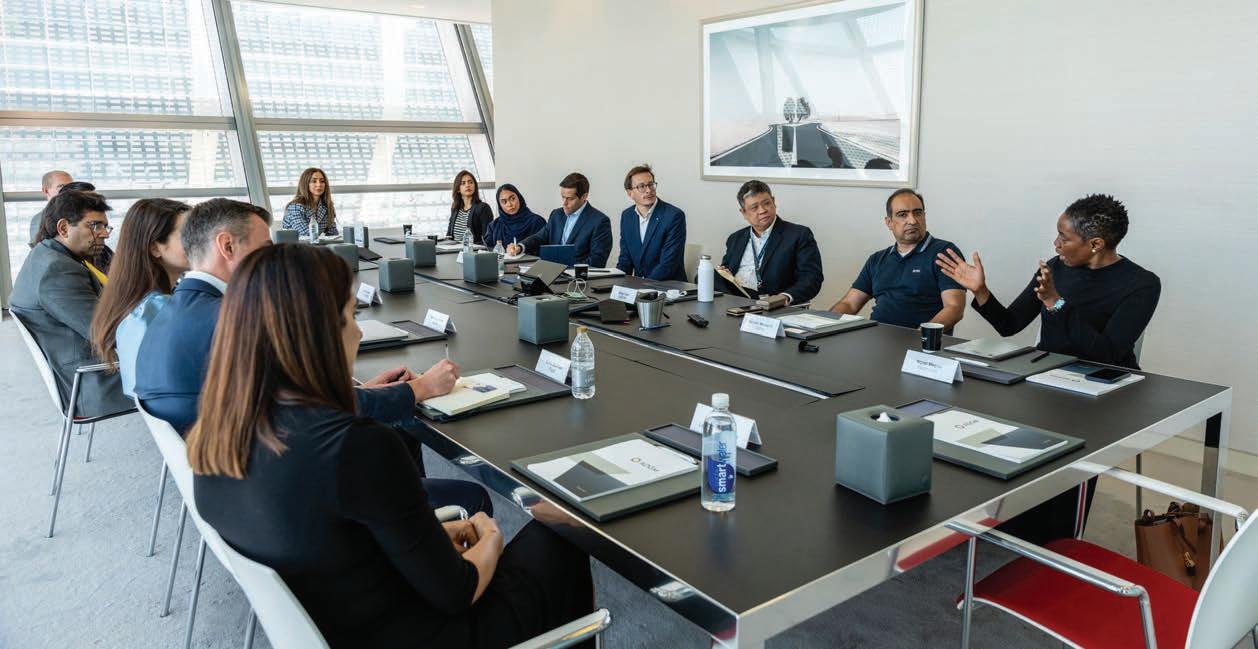
Encouraging banks to partner with fintechs is not a zero-sum game for banks and incumbents.
As financial services value chains shift to ecosystem revenue models, the relationship between fintech regulators and incumbents becomes reflexive: to build scale revenue streams both sides need each other. As one commentator at the meeting remarked, while there is growing realisation across the industry that this is needed, “the challenge is how do we talk to each other after a couple of years of everyone thinking in silos?”
It is in areas like these that communication matters. As one scaled fintech at the meeting underlined, at the level of
regulation fintechs need to work hard from the ‘get-go’ to build relationships with regulators that instil trust – ensuring governance is in place and liabilities are properly mitigated.
Given the global nature of fintech - where firms are ‘born global’regulators are particularly focused on understanding where, and with whom, liabilities lie. While this is a challenge for scaling firms institutional or corporate partnerships can help. Working with a counterparty that is regulated in multiple markets can remove some of the compliance headaches for smaller firms.
In the other direction, working effectively with banks means fintechs need to identify use cases that are solving real problems for the incumbents so that
GIVEN THE GLOBAL NATURE OF FINTECH - WHERE FIRMS ARE ‘BORN GLOBAL’
- REGULATORS ARE PARTICULARLY FOCUSED ON UNDERSTANDING WHERE, AND WITH WHOM, LIABILITIES LIE
internal stakeholders ‘get on board’ with a new way of doing things.
Roundtable participants agreed that one of the biggest challenges for the UAE is getting a consolidated perspective from ecosystem participants that cuts across fintech, banking and regulatory viewpoints. Although there are separate fintech and banking associations in the UAE with their own remits, there is no multilateral forum that gives a unified voice for the financial services industry as a whole. If much has been achieved already, the potential is unlimited.
The MENA region continues to have one of the highest proportions of unbanked consumers with as many as 6 out 10 consumers having no access to a bank account. And the UAE’s proximity to highgrowth markets in South Asia and Africa means the opportunity to build fintech players that span adjacent regions is real.
For the UAE in particular, the opportunity is now. As one participant remarked, Saudi Arabia’s fintech ecosystem is also growing rapidly. Realising a new phase of growth will depend on the ability of regulators, innovators and incumbent institutions to ‘synchronise,’ by breaking silos and driving collaboration to accelerate the transition toward a flatter, ecosystem model. While views of the mechanisms and speed of the shift to an ecosystem model differed, the meeting revealed a significant window of opportunity to drive synergies between stakeholders and incentivise collaboration.
Specifically:
Recognition of the shift to ecosystem business models in financial services
Need for a cross-ecosystem platform to embed a collaborative mindset
Impor tance of dialogue between regulators and industry to support value chain evolution
The roundtable participants included… Brian Yeoh , Director – Financial Technology, ADGM
Gabrielle Inzirillo, Head of Ecosystem Development – FSRA, ADGM
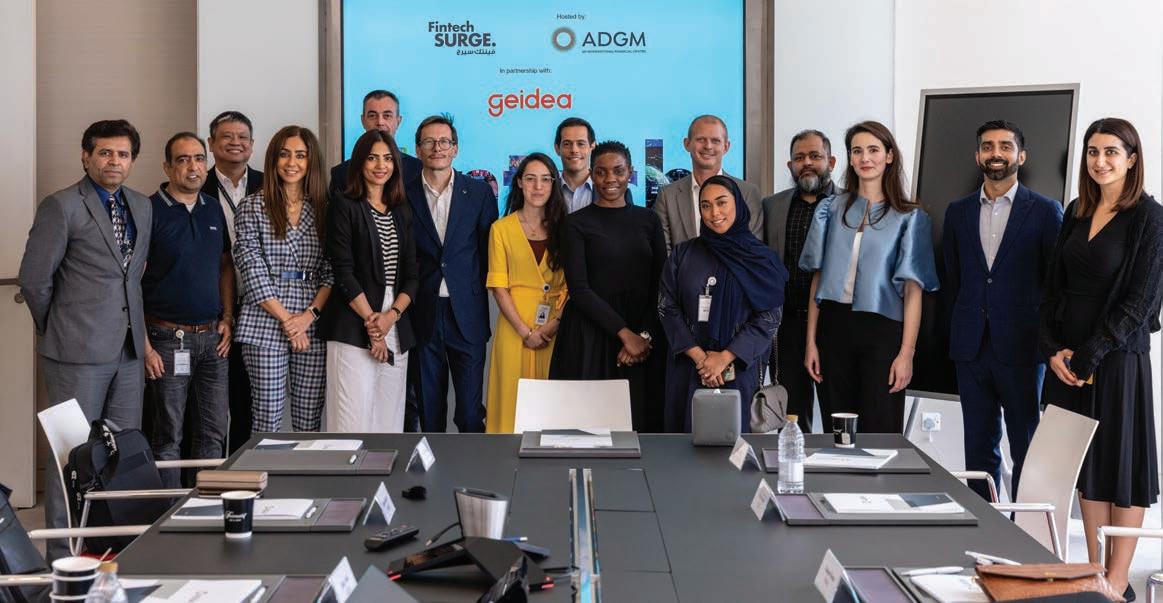
Hemant Julka, SVP Head of Fintech & Partnerships, Emirates NBD
Sailesh Malhotra , Head of GCC Region, Geidea
Ngozi Megwa, Senior Vice President Digital Partnerships EEMEA, Mastercard
Suhaib Ahmed, Innovation Research MENAT, HSBC
Maryam Al Moosawi , Innovation Manager MENAT, HSBC
Jorge Carrasco , Principal, FTI Consulting
Sebnem Erener, Legal Counsel, Klarna
Ruba Farah, Head of FI Partnerships, Lean Technologies
Simon Hardie , CEO & Founder, findexable
Chris Scanlan , Head of Investor Relations, Pyypl
Husain Shakir , Director of Partnerships, UAE Trade Connect
Sunita Khatri, Commercial Director, Dubai World Trade Centre
Oscar Wendel, Senior Manager, Dubai World Trade Centre
Neobanks are challenging the present status of mainstream banks, by offering lower-cost models, hyper-distinctive services and experiences reflecting changing customer demands, but also face their own unique challenges.
The way that financial institutions in the GCC have done business in the past is changing. Banking customers are clamouring for a superior cross-channel experience from their banks.
The growing and evolving demands require banks to go beyond a product lens and create customer experiences that are data-driven, consistent across channels, and complete with personalised advice.
“Products and services rendered and built on disruptive technologies are increasingly being placed in the hands of end customers, and the behaviours of banks are changing in terms of customer convenience, transparency, pricing and customer service,” said PwC.
As customers’ behaviours and expectations change, so do the business and operational models. Under these models, retail and small and medium enterprises (SME) banking services are primarily delivered digitally instead of physical branches.
These non-traditional banking service providers are called neobanks and they are challenging incumbents, offering lower-cost models and hyperdistinctive customer-centric service and experiences. Neobanks have reset the paradigm for the traditional banking industry in terms of customer experience, product innovation and pricing.
“Neo- and challenger banks have developed global banking operating
models that provide an end-to-end digital capability, and multi-service and multi-product coverage as well as an advantageous cost base in comparison to incumbents’ legacy models,” said Deloitte.
However, neobanks are facing unique hurdles. Though these digital attackers typically offer a better user experience, they will need to learn to accommodate more complex products if they are to grow their customer bases and become profitable.
GCC countries are in many ways fertile ground for new digital-only banks. Boston Consulting Group (BCG) said, in a report last October, that more than half of the GCC’s population is under 30, the region has one of the world’s highest internet connectivity rates and nearly two-thirds of the population is expected to hold 5G connections by 2026.
The digital transformation in the GCC financial services market was already underway before the turn of the decade, but it was accelerated by the outbreak of the pandemic. The result was a seismic shift in the way that customers organise their finances.

GCC central banks have long expressed an openness to neobanks even as regulations permitting such banks failed to materialise for many years. BCG projected that GCC’s neobank market will grow to a valuation of $3.45 billion by 2026, driven by
the growth in digital payments (53%) and digital remittances (41%).
The licencing of digital-only players in the Gulf region is in many ways an obvious play for the central banks, falling in line with key digital innovation targets set out in national development strategies such as Saudi Arabia’s Vision 2030 and Smart Dubai in the UAE.
Royal Strategic Partners-backed NAQD Community Bank is the latest neobank to join the UAE’s growing challenger bank ecosystem after receiving preliminary approval from the central bank in March.
YAP, the UAE’s first independent digital bank opened its doors for business in August 2021. The digital banking platform, which secured a $41 million investment in July and targeted to raise another $20 million to finance its growth plans, is expanding its regional footprint by launching in Saudi Arabia, where it will operate in partnership with Bank AlJazira.
The challenger bank offers consumer debit cards, virtual cards with Apple Pay and Samsung Pay spending analytics, YAP 2 YAP, money transfers, bill payments and real-time notifications of purchases. It has amassed more than 150,000 customers across three markets.
Digital-exclusive neobanks such as Wio Bank are already having a tremendous impact on SME and consumer finance, the digital economy and society at large. Wio became operational with the launch of its Wio Business last September.
The bank launched its retail banking proposition, Wio Personal, in August to complement its corporate banking offering. Wio Bank, which is jointly owned by Abu Dhabi’s ADQ Alpha Dhabi Holding, e& Group and First Abu Dhabi Bank, has three main business lines: digital banking apps, embedded finance and banking-asa-service solutions.
The UAE’s first digital community bank Al Maryah Community Bank (Mbank) offers an omnichannel experience to individual consumers and small businesses. The Abu Dhabi-based digitalexclusive bank partnered with the Khalifa Fund to provide SMEs with tailor-made,
– Deloitteconvenient and secure banking and financial services while managing their financials more efficiently.
Zand Bank, another neobank bank in the UAE, is yet to start operations after receiving a banking licence from the central bank in July 2022.
Global consulting firm Simon-Kucher & Partners said that if other markets are a good indicator of what will happen next, then the Middle East can expect more neobank competitors to appear very soon.
Though Saudi Arabia is yet to witness mainstream adoption of neobanks, the market is already showing an appetite for alternative solutions that enable banking customers to access services without stepping into brick-and-mortar branches. Saudi Central Bank (SAMA) began publishing licensing requirements for digital-only banks in 2020, in line with Vision 2030 and the financial sector development programme. The kingdom currently has three licenced neobanks.
D360 Bank, a Shariah-compliant neobank backed by the Public Investment Fund and Derayah Financial Company, is targeting the underserved segments, focusing on addressing customer pain points and leveraging innovation and technology to make banking convenient, accessible and fair to all.
stc Bank, which boasts eight million retail customers and more than 120,000 merchants within its network, is currently converting all its activities and functions from an e-wallet to a digital bank.
Saudi Digital Bank, which will run on cloud-native infrastructure and will focus on providing hyper-personalised financial services and products, will target both retail and SME customers.
Neobanks or challenger banks are unencumbered by the constraints of legacy business models and core systems. They leverage transparent product offerings to provide a wide range of easily accessible banking services in the platform approach that today’s digitally savvy customers expect.
The all-digital continuum
To build business agility, boost innovation and enable growth, a fundamental shift is required from incumbent GCC banks – moving from inward-looking practices with rules and procedures to outward-looking engagements through partnerships and collaborations.
Retail banks in the region are leveraging their existing resources to introduce speedboats – cloud-native digital spinoffs that enable faster time-tomarket for the launching of new products and market expansion.
Mambu said in a report that a wellexecuted speedboat, often customercentric or targeting a niche segment, can be quickly scaled up according to the market requirements.
Nomo, a digital bank backed by Kuwait’s Boubyan Bank Group, partnered with Abu Dhabi Commercial Bank and Al Hilal Bank in April, giving UAE customers
NEO- AND CHALLENGER BANKS HAVE DEVELOPED GLOBAL BANKING OPERATING MODELS THAT PROVIDE AN END-TO-END DIGITAL CAPABILITY, AND MULTI-SERVICE AND MULTI-PRODUCT COVERAGE AS WELL AS AN ADVANTAGEOUS COST BASE IN COMPARISON TO INCUMBENTS’ LEGACY MODELS.
access to UK-based Shariah-compliant multicurrency current and savings bank accounts. The unique proposition allows customers to get finance to buy properties in the UK as an investment or as a second home.
Dubai’s Mashreq trimmed its nationwide branch network from 34 in 2019 to just 10 this year. The bank operates ‘digital spinoffs’ offerings with its consumerfacing Neo and business-focused NeoBiz. In June, Mashreq Neo joined forces with India’s Federal Bank to facilitate digital Non-Resident Indian account opening for its customers in the UAE.
Emirates NBD launched Liv., a digitalexclusive bank for millennials, in 2017. Building on this success, the bank unveiled E20 in 2019, a digital bank that caters to the needs of small and mediumsized enterprises.
Similarly, Dubai Islamic Bank also introduced its digital spinoff rabbit in December 2021. The Shariah-compliant lender’s digital banking platform offers current accounts, globally accepted debit cards as well as payments and money transfer services.
The speedboat approach requires legacy banks to quickly develop new digital products and services that attract and delight customers. These offerings need less capital than traditional banking products and they are said to be far less expensive to support.
The GCC banking sector is at an inflexion point and the new innovative financial technologies are offering banks the potential to boost revenues at lower costs by engaging and serving customers in radically new ways using new business models.
The business of banking is changing rapidly, and open banking is the perfect growth catalyst for neobanks. Traditional banks can catalyse growth by operating a range of new models in parallel with the current core of the business.
McKinsey said though several banks are adopting open-banking enablers,
successful challenger banks gain a competitive advantage by building an open platform from the outset.
To become a value architect, incumbent banks should consider playing a range of roles in the value chain. Furthermore, depending on the size, market and strength of the bank, a legacy bank can embrace any mix of these approaches to increase business model flexibility and differentiate itself from the competition.
PwC said that open banking has the potential to reshape the financial services landscape and several financial centres in the emerging markets, the GCC region included, are making considerable moves in this space.
Open banking in the Gulf region exists on a spectrum, from models driven by regulators to those led by industry. SAMA unveiled its ‘Open Banking Lab’ last December as part of the Gulf state’s broader strategies to speed up
Global Market and Dubai Financial Services Authority.
Application Programming Interface (API), a set of communication protocols used to develop computer applications, are at the core of banks’ Open Architecture and play a significant role in our digital strategy.
Abu Dhabi Islamic Bank (ADIB) launched its first API developer portal last June allowing fintech developers to use the Shariah-compliant lender’s APIs. Emirates NBD also launched a readyto-use API developer portal ‘Emirates NBD API Souq,’ to provide fintech firms, developers and corporate clients an allin-one ecosystem to build innovative financial solutions.
Open banking requires a robust, agile and scalable IT architecture to enable API integrations with multiple entities. Its implementation promises to create a new data-sharing infrastructure, which will form the basis of a much richer range of
– PwC
the development of open banking. The ‘Lab’ constitutes a ‘technical testing environment’ to enable established banks and fintech companies the opportunity to ‘develop, test and certify’ open banking services to ensure compatibility with the framework.
Bahrain is implementing a Europeanstyle regulation-driven approach and the UAE has adopted an Americanstyle market-driven approach under the guidance of the Abu Dhabi
services and products across the whole of financial services.
GCC financial regulators, long seen as slow to adapt and suppressing innovation as opposed to encouraging it, hold the keys to the rapid advancement of digital banking in the region. The regulators are fast-forwarding the development of policies and frameworks to foster an environment conducive for new market entrants to enter, launch and promote innovation.
PRODUCTS AND SERVICES RENDERED AND BUILT ON DISRUPTIVE TECHNOLOGIES ARE INCREASINGLY BEING PLACED IN THE HANDS OF END CUSTOMERS AND THE BEHAVIOURS OF BANKS ARE CHANGING IN TERMS OF CUSTOMER CONVENIENCE, TRANSPARENCY, PRICING AND CUSTOMER SERVICE
16 - 17 OCT 2023
MUSEUM OF THE FUTURE

The SuperBridge Summit ignites, connects, and unites futureminded, action-oriented leaders from the world’s fastest growing economies to explore the rise of new markets , fast track partnerships and collaborations on transformative opportunities in the Middle East, Asia, Africa, Latin America and the rest of the world.

500+
influential executives from the world’s top organisations.
70+
25+ visionary leaders from GCC, Asia, Africa & South America.
insightful multi-disciplinary sessions from 20+ countries.
DR.
Founder and President INSTITUTE OF FINANCE AND SUSTAINABILITY Former Chief Economist PBOC China



DR. JUNQING WEI CEO, KARGOBOT CTO, DIDI AUTONOMOUS DRIVING China
SOUTHBRIDGE INVESTMENTS


Tanzania
and many more...
LIONEL ZINSOU Former Prime Minister Republic of Benin DR. FRANNIE LÉAUTIER Senior Partner and CEO JUN MAAs oil-rich countries in the Middle East and North Africa seek to reduce their dependence on fossil fuels and diversify their respective local economies, the region is on track to becoming one of the world’s biggest markets for green and sustainable finance
While the global sales of green and sustainable bonds plunged by 14 percent in 2022, the Europe, Middle East and Africa (EMEA) market remained resilient and saw staggering growth. In fact, the latest statistics show sustainable finance in the MENA region surged to USD 24.55 billion in 2021, representing a 532 percent year-on-year increase from USD 3.8 billion in 2020.

Complementing this phenomenal growth is the GCC green and sustainable bonds and sukuk market, which reached a value of USD 8.5 billion in 2022, marking a record-breaking 1,304 percent growth.
At the forefront of the region’s quest for enhanced sustainability is the UAE, which is set to host the 2023 United Nations Climate Change Conference, otherwise known as the 28th meeting of the Conference of the Parties (COP 28).
The UAE’s push for renewable projects and green policies has brought significant positive impact to its clean energy and sustainability sectors while advancing its environmental, social and governance (ESG) goals.
In 2021, it unveiled its Net Zero 2050 Charter, which highlights its commitment to cut down its greenhouse gas emissions and reach net zero – the state wherein the number of emissions produced balances out the emissions removed – by 2050.
As part of this strategic initiative, which established the UAE as the first country in MENA to commit to achieving net-zero
emissions, the UAE Government has revealed its plans to invest AED 600 billion (USD 163.3 billion) in clean and renewable energy sources in the next 30 years.
Furthermore, the UAE detailed in its Energy Strategy 2050 that it is eyeing to supply 44 percent of its energy from clean sources by 2050, generate 50,000 new green jobs by 2030, and invest between AED 150 billion to AED 200 billion (USD 40.8 billion to USD 54.4 billion) to meet the country’s increasing energy demand.
With the government leading the move towards sustainability and encouraging green finance projects, UAE-based companies and financial institutions have followed suit. In June this year, the First Abu Dhabi Bank issued USD 600 million worth of green bonds, while the Commercial Bank of Dubai successfully raised USD 500 million through its inaugural green bonds.
A month prior to these announcements, real estate and retail giant Majid Al Futtaim revealed that it generated USD 500 million via green bonds, four years after it first launched its green sukuk, an Islamic financial instrument that is equivalent to a conventional bond and is Shariah-compliant. Majid Al Futtaim also previously announced that it raised USD 1.25 billion through a Sustainability LinkedLoan in September 2022.
Considering these landmark sustainable finance projects in the UAE, the outlook for the country’s domestic market for green sukuk, bonds and loans indicates an upward trajectory and strong, consistent growth, building further on the sector’s remarkable performance in the past years where it reached a total value of USD 17 billion.
In addition to expanding its local green energy infrastructure and capacity, the UAE has extended its sustainability strategy internationally, having invested approximately USD 16.8 billion in renewable energy ventures across 70 countries, particularly in developing nations. It has also extended USD 400 million in loans for clean energy projects.
However, the UAE is not the only nation in the region making significant leaps
in sustainable finance. Its neighbour, the Kingdom of Saudi Arabia, has been actively laying the groundwork for a robust sustainable finance framework as it also spurs non-oil GDP growth.
The Kingdom, which aims to achieve net-zero emissions by 2060, has stated that its Public Investment Fund (PIF), one of the world’s largest sovereign wealth funds, has raised USD 5.5 billion in February this year by selling a green bond. The deal follows the success of PIF’s debut USD 3 billion green bond issuance in October 2022, which the Kingdom will reportedly use to finance or refinance projects in the areas of renewable energy, energy efficiency, sustainable architecture and green transport.
Aramco, the biggest oil producer in the world, to build a carbon capture and storage (CSS) hub.
The region could unlock USD 2 trillion growth through green finance, study says
According to a report by Strategy&, a global strategy consulting business and part of the PricewaterhouseCoopers network, “developing the right structure and mechanisms for green finance” can help the GCC region unlock USD 2 trillion in economic growth and generate more than one million jobs by 2030. Establishing a sustainable finance framework will also enable the region to accelerate its economic diversification and job creation,
Following the Kingdom’s drive to boost sustainable finance, Riyadh-based Al Rajhi Bank raised USD 1 billion in sustainable Islamic bonds in March. One of the world’s largest Islamic banks, Al Rajhi Bank has committed to contributing to sustainable development goals related to developing and delivering affordable and clean energy, clean water and sanitation, and sustainable cities and communities.
Underlining the Kingdom’s resolute commitment to realising its sustainability goals, it unveiled 13 new renewable energy projects with a capacity of 11.3 gigawatts last year. The projects, which are expected to drastically reduce the country’s carbon emissions by around 20 million tons per year, align with Saudi Arabia’s target of generating 50 percent of its power from renewable sources by 2030.
Additionally, its Ministry of Energy is collaborating with state-owned Saudi
thus making it an even more attractive hub for foreign direct investment (FDI).
Echoing a similar sentiment, the World Bank’s International Finance Corporation has forecast that the Paris Climate Accords, a legally binding international treaty on climate change adopted by 196 Parties at COP21, generated nearly USD 23 trillion of climate-smart investment opportunities in emerging markets from 2016 to 2030.
Taking a look at the milestone green finance projects, market trends and increasing ESG reporting in the region and globally, sustainable finance –complemented with strong governance and responsive green policies – will be key to successfully pivoting the region to having a more sustainable, diversified and long-term economic growth that is less vulnerable to fluctuations in the oil and gas market.
WITH THE GOVERNMENT LEADING THE MOVE TOWARDS SUSTAINABILITY AND ENCOURAGING GREEN FINANCE PROJECTS, UAE-BASED COMPANIES AND FINANCIAL INSTITUTIONS HAVE FOLLOWED SUIT

During the 2007-08 financial crisis, it was realised that a central identification code unique to each financial institution was not available worldwide and each country had different code systems to recognise the counterpart corporation of financial transactions. Therefore, it was impossible for the business parties to identify the transaction details of individual corporations, know the counterpart of financial transactions and calculate the total risk amount. As a result, it was difficult to assess the risk exposure of an entity and measure market risk. In 2011, regulators of the G20 countries began development of a system in response to the inability of financial institutions to identify organisations uniquely so that their institutions’ crossborder financial transactions could be fully tracked.
Established in 2014, the Global Legal Entity Identifier Foundation (GLEIF) is a non-profit organisation based in Switzerland that oversees the operational integrity of the Legal Entity Identifier (LEI) system. GLEIF is managed by the LEI Regulatory Oversight Committee (LEI ROC) which is comprised of representatives from different jurisdictions worldwide. GLEIF regulates the Local Operating Units (LOUs) that are responsible for issuing LEI Codes.
The technical specification for LEI is ISO 17442. An LEI consists of a
20-character alphanumeric string, with the first four characters identifying the LOU that issued the LEI. Characters 5-18 are the unique alphanumeric string assigned to the organisation by the LOU. The last two characters are checksum digits. The checksum is a value used to detect errors in data transmission. The LEI code in itself does not provide any valuable information but it is only used to uniquely identify each legal entity.
In the area of international trade, we definitely need the authenticity and identity of the parties engaged in a trade transaction. Knowing that trade is evolving to become a high-tech matter worldwide, parties involved in trade need to be identified by a central registration system. The LEI system is the ideal means to address this challenge.
Any good product can benefit the community when it is adopted and it is true that businesses are rapidly adopting the LEI system. But it will take decades to be fully embraced by the majority of businesses around the world according to some commentators. Today 2.2 million active LEIs are in circulation but represent just a fraction of the total number of registered entities around the globe. Though adaptation is supported by many large banks such as JP Morgan and backed by the International Chamber of Commerce (ICC refers to LEI as a “Digital Trade Enabler”), widespread acceptance of the system is still challenging.
The journey of transforming trade finance into a fully digitalised version has been accelerated by blockchain, artificial intelligence, big data, analytics and application of other new technology. Currently, as measured by the Asian Development Bank, the world’s trade finance gap is around USD 1.7 trillion. LEI will contribute to enhancing trade and create many more opportunities when entities can be identified accurately and efficiently. This will help reduce the trade finance gap.
Especially in developing markets, but in the global market overall, AML and KYC are some of the biggest barriers to fulfilling the financing needs of SMEs by lending entities. The LEI central recognised system will address the trading world’s concern of KYC by giving confidence as to who is who, who owns whom, and who owns efficiently and accurately. LEI will help and support SMEs in obtaining faster and easier access to finances by providing their KYC information to financiers in a systematic and consistent manner.
In my opinion, it is time to adopt LEI now. We have seen that LEI offers huge support to trade around the world and industry bodies, regulators and policymakers are working to promote broader adoption of the LEI.





Banks today are missing scale and speed in cloud adoption - our research indicates that the full value of cloud transformation is only realized upon migrating at least 60% of your bank’s workload to cloud. Yet most banks are far from that milestone, and they lack a clear roadmap to get there.
Infosys Finacle has made huge investments and created multiple proven use cases in cloud technology. Access our latest point-of-view 'Banking on Cloud: the next lap' for a detailed roadmap of how banks can accelerate their cloud adoption journey with agility and decisiveness.